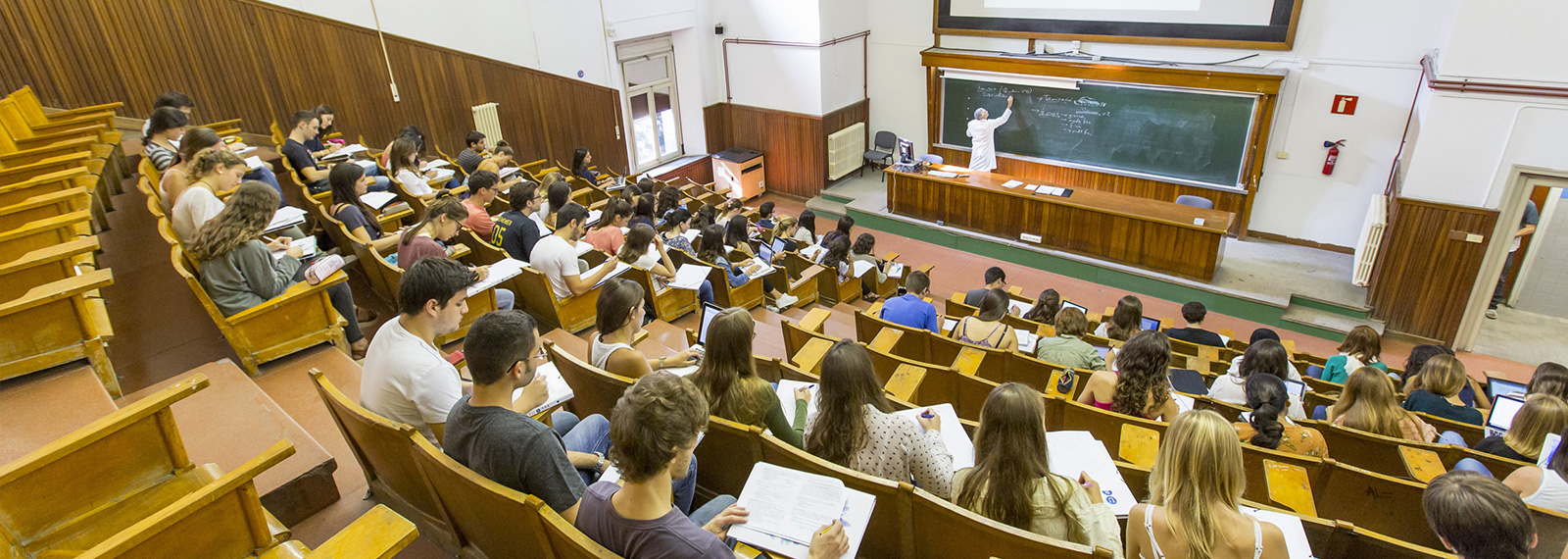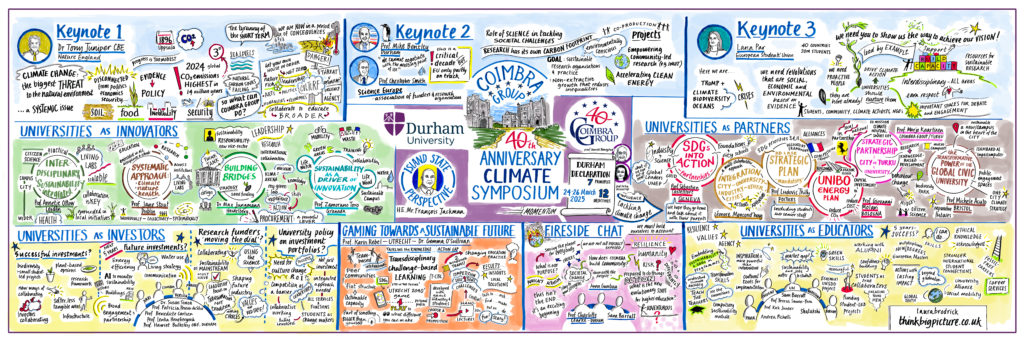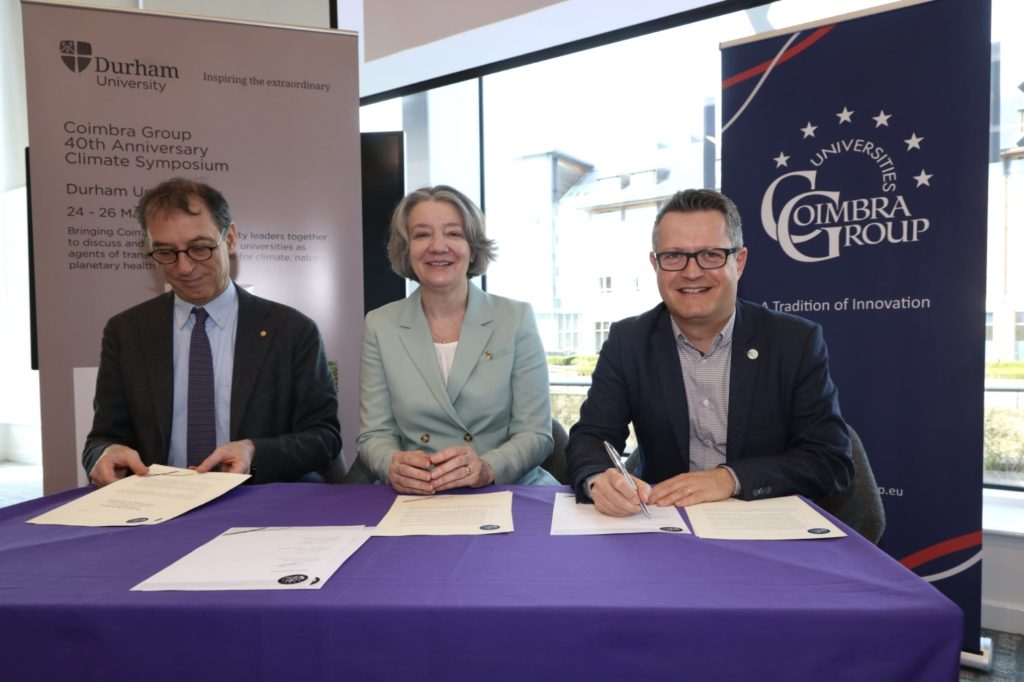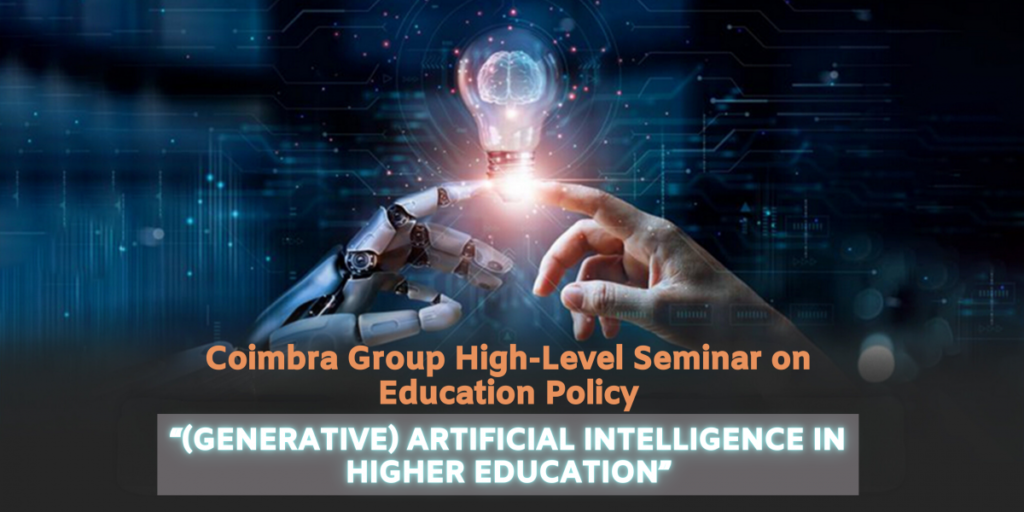2025 Seminar “Reinventing Campus Democracy: Bridging Divides and Advancing Solutions”
Brussels, Belgium, 20-21 November 2025
Organising entities: Coimbra Group, Utrecht University, with support from the European Students’ Union (ESU)
The Coimbra Group together with Utrecht University are launching the 40th anniversary of the Coimbra Group closing event, 21 November (8h30 – 17h00), at the University Foundation, Rue d´Egmont 11, Brussels. The topic is: “Reinventing Campus Democracy: Bridging Divides and Advancing Solutions”.
Key information
- Registrations (upon invitation only) are now open at this link. The deadline for registrations is 24 October 2025.
- For accommodation recommendations and discounts, please contact info@coimbra-group.eu
- The Call for Contributions (selection of breakout topic and nomination of expert) is open (via email). The deadline is 1 September 2025.
Background
In a context of growing social and political tensions, both globally and within our own campuses, universities are increasingly called upon to serve as models of open dialogue, inclusive governance, and democratic resilience. However, recent events show the limits and challenges universities face in fulfilling this role.
This seminar aims to explore how universities can foster dialogue, navigate disagreement, and reinforce democratic principles on campus.
The seminar is a step to bridge the gap between scholarly research and campus discourse and will revolve around methodological issues: What insights and examples do universities present to contribute to a viable and sustainable democracy? What principles and procedures does this require on campus?
Objectives of the conference:
- Setting a reference point for future activities (e.g. joint programmes in education and research, summer schools and leadership development)
- empowering the participants on the topic,
- rethinking university governance
- set examples of dialogue and reconciliation on societal issues.
One key principle underlying the whole event is the students’ active participation in the discussions, and the understanding that a campus is a community where stakeholders learn from each other.
Programme
Seminar including a series of keynotes and 6 interactive breakout sessions in two cycles of 3 parallel sessions.
• Keynote speeches:
- Henk Kummeling, former Rector, Utrecht University
- Věra Jourová, Vice-Rector for the Development of Human Resources and New Technologies, Charles University / former Vice President of the European Commission for Values and Transparency
• Address by Arno Schrooyen (Vice-President, European Students’ Union – ESU)
And more speakers tbc.
• Breakout sessions:
Six breakout sessions (divided in two cycles of three parallel sessions) will be organised, to discuss in an interactive format best practices and possibilities on the way in which debate happens on campus, relatively to topics relevant to CG universities. Three topics have already been identified, three more are left open for CG Universities and their students’ community to determine through an open call for contributions. Of these three slots, one will exclusively be determined by the students.
Topics:
- Geopolitical tensions and conflicts
- Neo-conservativism, neo-liberalism, wokeism: anti-democratic visions and polarisation within societies
- Climate change scepticism and anti-scientific sentiment
- Open for proposal (through the call for contributions launched)
- Open for proposal (through the call for contributions launched)
- Open for proposal (through the call for contributions launched, exclusively chosen by CG students)
• Final panel:
To conclude the conference, the moderator of each breakout session will present the outcomes of their group’s discussion on a final panel, with the aim of sharing best practices and defining future activities to keep the democratic discourse in campuses ongoing.
2023 CG High-Level Seminar on Research Policy, Brussels:
“Achieving Excellence at Universities: What does it mean in times of multiple crises?”
University Foundation, 13-14 November 2023
The 6th Coimbra Group High-Level Seminar on Research Policy will examine the systemic components of excellence, looking across the spectrum of Universities’ missions (education, research, innovation and service to society) as well as at related human resources-related policies (e.g. careers, equality, diversity & inclusion (EDI), research assessment…). It will also address relevant policy actions under the European Research Area. Furthermore, the seminar will draw on the experience learnt by CG members with the Horizon Europe programme and address strategic questions on how to shape the best possible FP10 in this regard.
With this seminar, the Executive Board particularly intends to:
– Provide a space for reflection at CG leadership level on the concept of excellence in higher education, a concept which is often overused, and in so many ways that it may even be misused sometimes.
– Consolidate CG vision on these issues and provide new input to the implementation of the European Research Area Policy Agenda – notably for action 13 (European Excellence Initiative) as well as for actions 3 (research assessment) and 4 (research careers).
– Offer opportunities to CG Rectors and Vice-Rectors for Research to strengthening links as a community and to establish direct contact with high-level decision makers from the EU institutions.
Achieving these objectives will be facilitated through:
– Keynote speeches providing overview of current research, and insights from the leadership and policy level.
– Quality discussion time with Commission’s representatives at various levels.
– Roundtables with Rectors from CG Universities and other experts, seeking to reflect on existing practices, strategies and trends and to generate new ideas for further improvement.
– Networking lunch and dinner.
We are pleased to already confirm the presence of high-level speakers Signe Ratso, Deputy Director-General for Research and Innovation, and Maria Leptin, President of the European Research Council. More speakers will be confirmed in the following weeks.
Coimbra Group High-Level Seminar on Research Policy are geared towards Rectors and Vice-Rectors for Research and for Internationalisation of the CG Universities.
For more information, please contact info@coimbra-group.eu
Joint Montevideo Group-Coimbra Group High-level Workshop: “Strengthening academic collaboration between Latin America and Europe”
Montevideo, Uruguay, 5-6 December 2022
Rectors and Vice-Rectors from Universities in Coimbra Group (CG) and the Association of Universities Grupo Montevideo (AUGM), will meet at a High-Level workshop taking place on the 5th and 6th of December in Montevideo, Uruguay. The event is aimed at strengthening collaboration between European and Latin American Universities through an exchange that allows strategic consolidation of the scientific and political priorities across both university groups around education, research and innovation. The event builds on the civic responsibility of the universities through their core mission of representing solid institutions of research and research-based education in contemporary societies.
Please find here the concept note and the preliminary programme of the event. Although this is an in-person event, there will be the possibility to follow some of the sessions online.
The event will count with the participation from international organisations, such as EU-LAC, UNESCO, DG RTD, Euraxess, representatives from European Embassies in Uruguay, and student associations, to enable an understanding of opportunities for collaboration, priorities across international communities and addressing the role of universities in emerging global challenges around open science, climate emergency, diversity and inclusion.
2022 CG High-Level Seminar on Education Policy, Uppsala:
“From learning spaces to learning environments”
Uppsala University, 9-10 November 2022
The High-Level Seminar on Education Policy at Uppsala University took place on 9th-10th November 2022, on the topic “From Learning Spaces to Learning Environments.” The event intended to focus on the following overarching questions related to the topic:
- How can universities ensure the broader adoption and more integrated use of often costly, innovative spaces for teaching and learning, in order to benefit a high number of students and contribute to the positive return on educational investment?
- How can we ensure that the many lessons learnt during the Covid-19 crisis can be turned into fruitful, pedagogical development, creating learning environments which make the best possible use of both online and campus-based activities?
- How can our universities, at all levels, share experiences, best practices, and strategies for the development of creative, sustainable and inclusive learning environments – whether they are physical or virtual, and whether they concern courses or the entire campus? How can we best learn from each other?
Worldwide, universities have invested considerable resources in the construction of new, physical learning spaces, often equipped with different digital technologies. During the Covid-19 crisis, the use of online, virtual learning spaces also expanded quickly. Coimbra Group institutions are no exception in the area of vividly developing virtual and digital technologies. Our universities have been creating and running innovative facilities and are well positioned to present a broad spectrum of various learning spaces. Locally, at Uppsala University which hosted the 2022 Seminar, several new learning spaces have been developed. Both brand new, such as the Experimental Classroom at Campus Blåsenhus, as well as redesigned rooms.
Taking these realities into consideration, the 2022 High Level Policy Seminar gave Rectors and Vice-Rectors for Education of Coimbra Group Universities an opportunity to engage in strategic-perspective conversations on the evolving relationship between learning environments and education policy. Participants had a chance to benefit from the following diverse agenda items:
• Introduction to examples of innovative teaching and learning activities during the Walkabout Session which featured innovative use of learning spaces within the Coimbra Group network prepared by Education Innovation Working Group members,
• Interaction with both teachers and students of Uppsala University on their respective experiences,
• Insights from current research on new learning spaces delivered by three keynote speakers: Marie Leijon from Malmö University, Sandra Kučina Softić from the University of Zagreb and Brent Carnell from University College London,
• Exchange, with peers and experts, on aspects of critical importance for the successful development of academic learning environments during the Workshop and the Roundtable discussion on the second day of the Seminar.
This High-Level Seminar intended to reflect on the conclusions coming from both research and practice and translate them into the strategic-oriented conversations. Ten months after its adoption by the European Commission, the new European Strategy for Universities (ES4U) provided a baseline for discussion, with the objective to address the topics presented below and provide recommendations for ES4U translation into tangible outcomes for our institutions:
- Creating and using living labs in the context of effective campus development,
- Supporting effective strategies for the Assessment of Learning Spaces,
- Implementing equality, diversity, and inclusion (EDI) values into the creation of Learning Environments,
- Facilitating and promoting transnational teaching at universities,
- Enabling effective strategies for professional development of academic staff in the context of teaching innovations,
- Creating of genuinely international, sustainable learning environments in the realm of European University Alliances,
- Preparing graduates to be critically thinking well-informed European citizens by using university heritage collections,
- Creating synergies that enable educational projects to improve teaching & learning activities sustainably.
This year’s Seminar gathered nearly 50 participants coming from diverse locations of Coimbra Group universities across Europe, which was reflected in rich contributions and led to quality and creative discussions. The High-Level Seminar in Uppsala continues the annual tradition of Coimbra Group high-level policy events addressing issues of key concerns in, alternately, education and research policies.
High-Level Seminar in Uppsala Programme
Presentations of keynote speakers:
Marie Leijon, Malmö University: Hybrid learning spaces – a hype or a hope?
Sandra Kučina Softić, University of Zagreb: Rethinking Learning Space for 21st century Student
Recordings of keynote sessions:
Marie Leijon, Malmö University: Hybrid learning spaces – a hype or a hope?
Sandra Kučina Softić, University of Zagreb: Rethinking Learning Spaces for 21st century Student
Wrap-up Summary « (available shortly) »
Key Recommendations from the Workshop « (available shortly) »
Good practices of learning environments from Coimbra Group universities
2021 CG High-Level Seminar on Research Policy, Geneva:
“The Coimbra Group Meets the United Nations”
Palais des Nations, Geneva, 21-22 October 2021
The High-Level Seminar on Research Policy took place in 2021 at the Palais des Nations in Geneva on the topic “The Coimbra Group Meets the United Nations”.
Jointly organised by the Coimbra Group, the University of Geneva and the UN Library & Archives, this seminar was intended as a forum for informal dialogue on Science Diplomacy, with a specific focus on the impact of the United Nations Sustainable Development Goals (UN SDG) on research and the contribution of research to the SDGs.
The Rectors and Vice-Rectors for Research and for International of Coimbra Group Universities were joined by heads of UN agencies, government officials, think-tanks impact investors and representatives of other international actors such as the CERN or the World Economic Forum, to discuss the roadmap towards achieving the SDGs by 2030.
The keynotes were delivered by Amb. Jürg Lauber, Permanent Representative of Switzerland to the United Nations in Geneva, and by Ms Anna Panagopoulou, Director for ERA & Innovation at the European Commission (DG RTD).
The seminar successfully contributed to:
- Empower universities in bridging/cooperating/increasing their engagement with international organisations through a dialogue between academic research, on one side, and the UN SDG framework and its redefinition towards 2030 on the other side;
- Provide an overview of existing initiatives in the field of science-policy interface with international organisations;
- Offer opportunities to Coimbra Group universities’ Rectors and Vice-Rectors to establish direct contact with high-level decision makers of UN agencies based in Geneva and discuss possible collaborations.
Two roundtables were held dealing with “Leveraging science and knowledge to achieve the SDGs: views of four different stakeholders” and “Strengthening the Interface between Science and Policy”.
The participants also took part in a creative interactive session using futures-thinking which key messages have been captured in a graphic recording visible below.
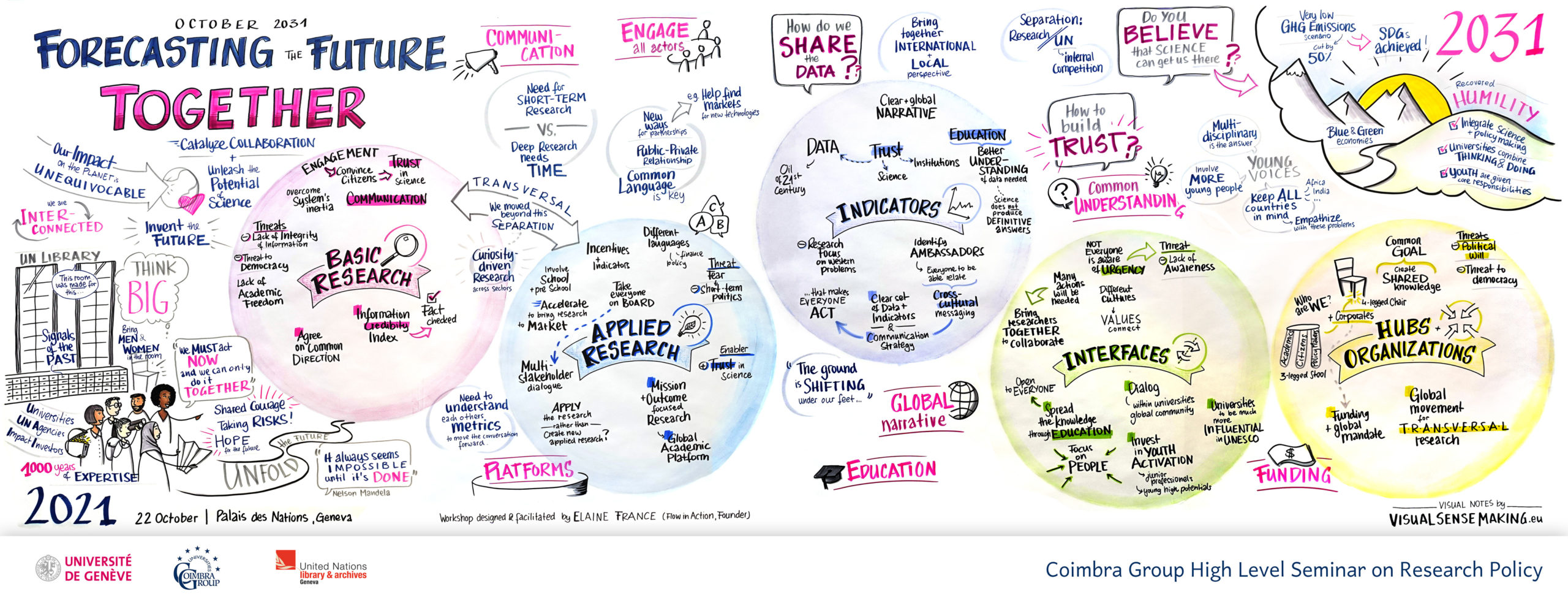
Presentation Peter Lievens: Sustainability at KU Leuven
2020 CG High-Level Webinar on Education Policy, online:
“Challenges and future of internationalisation in the European Knowledge Area”
3-4 December 2020
The High-Level Webinar on Education took place on 3rd – 4th December 2020, on the topic “Challenges and future of internationalisation in the European Knowledge Area”.
The Coimbra Group ambitions to play a proactive role in the discussions that will shape the European Knowledge Area (“EKA”), drawing on the education- and research-led profile of its 41 member universities, and also on its network-wide expertise in the field of physical mobility as well as collaborative and online teaching accumulated since the very beginning to the Erasmus experience.
Our recent Report on “Practices at Coimbra Group Universities in response to COVID-19” together with our Position Paper on the Digital Education Plan pointed out the crucial need to foster a multi-scale reflection on the mid- and long-term perspectives of academic mobility (students, teachers, researchers) and teaching innovation: from the viewpoints of students and teachers, but also of university managers, as well as national and European policymakers.
Without diminishing the irreplaceable and central role of physical mobility of students, academics (teachers and researchers), and staff in the building of the EKA, the Coimbra Group will now undertake a systematic assessment of the recent experiences and initiatives concerning Virtual Exchange (VE) and innovative online tools and activities (incl. courses).
This High Level Webinar on Education Policy took the first decisive steps in this direction via
1) a review of the current trends in collaborative forms of VE and innovative teaching,
2) a multi-scale analysis and
3) concrete recommendations on their future implementation and roll-out.
This webinar continues the annual tradition of Coimbra Group high-level policy seminars addressing issues of key concerns in, alternately, education and research policies.
Wrap-up Summary and Key Takings from the sessions
Presentations
Session 1: Review of challenges and opportunities
- Jürgen Barkhoff, Trinity College Dublin, Executive Board Vice-Chair
- Ben Williamson, University of EdinburghCritical approaches to the ‘digital transformation’ of higher educationBen Williamson – script
- Robert O’Dowd, University of LeónVirtual Exchange in the new EC Communications and programmesRob ODowd – key links
- Francesca Helm, University of Padova, Chair of the Education Innovation Working Group
- Dorota Maciejowska, Jagiellonian University Krakow, Chair of the Academic Exchange and Mobility Working Group
Session 2: Building concrete solutions via institutional innovations
- Danny Donoghue, Durham University, Executive Board Member
- Benchmarking international outlook of Coimbra Group universities
- Sara Laginder, Uppsala UniversityReaction to long-term challenges for mobility posed by the pandemic
- Stefania Mellera, University of PaviaCareer services’ adaptations in face of the new situation generated by COVID19
Session 3: Building concrete solutions via collaborative innovations
- Lenka Rovná, Charles University in Prague, Executive Board Member
- Stanisław Kistryn, Vice-Rector, Jagiellonian University Krakow, Una EuropaExample of innovative solutions developed at the level of Una Europa
- Dorothy Kelly, Vice-Rector, University of Granada, ArqusExample of innovative solutions developed at the level of Arqus
- Dana Samson, Vice-Rector, Catholic University of Louvain & Berit Eika, Pro-Rector, Aarhus University, Circle U.
Example of innovative solutions developed at the level of Circle U.
Session 4: Recommendations for the future of mobility and internationalisation in the
European Knowledge Area
- Ludovic Thilly, University of Poitiers, Executive Board Chair
- Sophia Eriksson-Waterschoot, Director for Youth, Education and Erasmus+, European Commission
- Dirk Van Damne, Senior Counsellor, OECD Directorate for Education and SkillsProspects for Mobility and Internationalization
Dirk Van Damne – key links - Cisca Wijmenga, Rector, University of Groningen
- Eva Åkesson, Vice-Chancellor, University of Uppsala
- Beatrix Busse, Vice-Rector, University of Cologne
- Kostis Giannidis, President, Erasmus Student Network
2019 CG High-Level Seminar on Education Policy, Tartu:
“Universities as drivers of socio-academic integration in multilingual Europe”
2-3 December 2019, Tartu
The High-Level Seminar on Education took place at the University of Tartu, 2nd – 3rd December 2019, on the topic “Universities as drivers of socio-academic integration in multilingual Europe”.
On the occasion, the Coimbra Group announced the first international benchmarking results.
This seminar continues the annual tradition of Coimbra Group high-level policy seminars addressing issues of key concerns in, alternately, education and research policies.
Presentations
Prof. Ludovic Thilly, Chair of the Executive Board of the Coimbra Group
Director-General Themis Christophidou, DG Education, Youth, Sport and Culture
Nick Pidgeon, i-graduate
Prof. Sanja Boskovic, Poitiers
Prof. Birute Klaas, Tartu
Prof. Riitta Pyykkö, Vice-Rector, Turku
Prof. Catherine Montgomery, Durham
Prof. Jasperina Brouwer, Groningen
2018 CG High-Level Seminar on Research Policy, San Servolo:
“Defining and measuring impact of level Seminar on Research : Policy an interdisciplinary and intersectoral approach”
6-7 December 2018, San Servolo
Since 2013, the Coimbra Group has organised high-level policy seminars on research to address current issues in European research policy of key importance to member universities and to the European research community. The high-level policy seminars have been organised in collaboration with the Venice International University based on the Isola di San Servolo, Venice.
The high-level policy seminars are intended as a forum for informal dialogue between university rectors, stakeholders and key decision makers in European research policy.
The theme chosen by the Executive Board of the Coimbra Group for 2018 was “Defining and measuring impact of research: an inter-disciplinary and inter-sectoral approach”. The rationale is based on the increasing importance of research impact assessment currently observed in national, European and international research programmes, and expected to increase further in the future, in particular within the ninth European Research and Innovation Framework Programme, Horizon Europe, and associated Open Science policies. At the high-level seminar, we aimed at gathering Coimbra Group rectors and experts from the field to reflect on the current state of research impact definitions and associated indicators, considering the different disciplines, sectors and viewpoints of involved funding bodies. A specific focus was on one of the recent developments in research policy, i.e. the introduction of a mission-oriented approach and its impact on Research and Innovation practices in general. The seminar was composed of four main sessions: the first aimed at providing information on the latest developments in FP9 and mission-oriented research, while the second and third sessions focused on inter-disciplinary and inter-sectoral definitions and assessments of research impact. The last session introduced case studies on how to develop a research impact culture at universities.
Among the invited key note speakers and discussants were key stakeholders in European research policy, representatives from European institutions, leading researchers and policy officers from member universities, rectors from member universities as well as representatives from other European university networks. As at earlier high-level policy seminar, the 2018 event was attended by Rectors and Vice Rectors for Research at our member universities from all over Europe together with their senior research support officers. It was intended to offer senior representatives at our member universities a forum for discussion of issues arising from the design and implementation of the Horizon Europe.
Presentations
Opening addresses
The Honorary President of the Coimbra Group, Rector Ricardo Rivero Ortega
Representative of the Venice International University, Ambassador Umberto Vattani
Venice International University
The Chair of the Executive Board of the Coimbra Group, Prof. Ludovic Thilly
Session 1: Status of FP9, Horizon Europe
Session 2: How to define research impact
Prof. Jean-Pierre Bourguignon, President of the European Research Council
Prof. Anders Flodström, Education Director of EIT Digital
Session 3: How to define and measure research impact – funders’ views
Jean-Claude Burgelman, Head of Unit B2 “Open Science”, DG Research & Innovation, European Commission
Chonnettia Jones, Director of Insight and Analysis, Wellcome Trust
Session 4: How to develop a research impact culture?
First Coimbra Group High-Level Workshop on “Lifelong Learning and Employability”
24 January 2018
The Permanent Representation of the Czech Republic to the EU, Brussels
The Coimbra Group, the network of historical comprehensive research-intensive European universities (www.coimbra-group.eu), is committed to serving European society and to addressing its grand challenges. At the forefront of these are the unemployment reduction and the continuous upskilling of the workforce. As a result, Lifelong Learning and Employability are top priorities for the European Union institutions as well as for European universities. This is reflected in recent studies, which state:
“Persistent lack of employment opportunities, especially among the young and low-skilled, may lead to serious long-term consequences. […]. More generally, improving and maintaining high-level skills and workforce competences is essential to ensure that Europe remains competitive and innovative against increasing global competition, fast-changing labour market needs and demographic challenges. […]. The low-skilled are now clearly at the top of the European policy agenda: the New skills agenda for Europe includes a specific action (Upskilling pathways: new opportunities for adults) aimed at supporting Member States in ensuring that every European acquires a minimum level of skills necessary to realise talent and potential fully.” [Cedefop (2017). Investing in skills pays off: the economic and social cost of low skilled adults in the EU. Luxembourg: Publications Office. Cedefop research paper No 60. http://dx.doi.org/10.2801/23250]
“With global competition increasing, demographic change unfolding and rapid technological change intensifying, skill mismatch has come to the forefront of Europe’s policy debate. […]. Shortages in some sectors may occur simultaneously with over-education in others. When skill mismatch takes time to resolve it imposes real costs on individuals, enterprises and societies.” [Cedefop (2010). The skill matching challenge. Analysing skill mismatch and policy implications. Luxembourg: Publications Office of the European Union, 2010. ISBN 978-92-896-0485-7]
“Europe’s universities need urgent renewal, to stimulate entrepreneurship and tear down disciplinary borders. […]. The post-2020 EU R&I programme should reinforce support for skills and competence development in EU-funded projects.” [European Commission – Directorate-General for Research and Innovation (2017). LAB – FAB – APP — Investing in the European future we want. Luxembourg: Publications Office of the European Union. PDF ISBN 978-92-79-70068-2 doi:10.2777/30011 KI-01-17-665-EN-N]
*****
In the context of preparations for the next European Programmes for higher education and for research and innovation (the post-Erasmus+ and the post-Horizon 2020 programmes), the Coimbra Group wishes to bring significant contributions to this modernisation agenda. A first step towards that is the organisation of this workshop in cooperation with MEP Mrs Elisabeth Morin-Chartier (Parliament’s Bureau, Quaestor, Committee on Employment and Social Affairs).
Coimbra Group Universities have a long tradition of innovation and are committed to engage in intensive dialogue with European institutions in support of ambitious Higher Education and Research policies. This High-Level Workshop aims at bringing Rectors from the Coimbra Group Universities together with European Higher Education Experts and Policymakers to discuss how comprehensive, research-intensive universities can contribute constructively to the Higher Education modernisation agenda on Lifelong Learning and Employability.
For further information and registration please contact Catarina Moleiro at the Coimbra Group Office (moleiro@coimbra-group.eu).
Presentations
Ludovic Thilly, Professor, University of Poitiers, Chair of the Coimbra Group Executive Board
Cesare Onestini, Director of ETF, European Training Foundation
Eika Berit, Pro-Rector, Aarhus University
Nathalie Martin-Papineau, Vice-Rector, University of Poitiers
Ilaria Poggiolini, Vice-Rector, University of Pavia
Wijnand Aalderink, Director, Career Services and Corporate Relations, University of Groningen
24 January 2018
The Permanent Representation of the Czech Republic to the EU, Brussels
The Coimbra Group, the network of historical comprehensive research-intensive European universities (www.coimbra-group.eu), is committed to serving European society and to addressing its grand challenges. At the forefront of these are the unemployment reduction and the continuous upskilling of the workforce. As a result, Lifelong Learning and Employability are top priorities for the European Union institutions as well as for European universities. This is reflected in recent studies, which state:
“Persistent lack of employment opportunities, especially among the young and low-skilled, may lead to serious long-term consequences. […]. More generally, improving and maintaining high-level skills and workforce competences is essential to ensure that Europe remains competitive and innovative against increasing global competition, fast-changing labour market needs and demographic challenges. […]. The low-skilled are now clearly at the top of the European policy agenda: the New skills agenda for Europe includes a specific action (Upskilling pathways: new opportunities for adults) aimed at supporting Member States in ensuring that every European acquires a minimum level of skills necessary to realise talent and potential fully.” [Cedefop (2017). Investing in skills pays off: the economic and social cost of low skilled adults in the EU. Luxembourg: Publications Office. Cedefop research paper No 60. http://dx.doi.org/10.2801/23250]
“With global competition increasing, demographic change unfolding and rapid technological change intensifying, skill mismatch has come to the forefront of Europe’s policy debate. […]. Shortages in some sectors may occur simultaneously with over-education in others. When skill mismatch takes time to resolve it imposes real costs on individuals, enterprises and societies.” [Cedefop (2010). The skill matching challenge. Analysing skill mismatch and policy implications. Luxembourg: Publications Office of the European Union, 2010. ISBN 978-92-896-0485-7]
“Europe’s universities need urgent renewal, to stimulate entrepreneurship and tear down disciplinary borders. […]. The post-2020 EU R&I programme should reinforce support for skills and competence development in EU-funded projects.” [European Commission – Directorate-General for Research and Innovation (2017). LAB – FAB – APP — Investing in the European future we want. Luxembourg: Publications Office of the European Union. PDF ISBN 978-92-79-70068-2 doi:10.2777/30011 KI-01-17-665-EN-N]
*****
In the context of preparations for the next European Programmes for higher education and for research and innovation (the post-Erasmus+ and the post-Horizon 2020 programmes), the Coimbra Group wishes to bring significant contributions to this modernisation agenda. A first step towards that is the organisation of this workshop in cooperation with MEP Mrs Elisabeth Morin-Chartier (Parliament’s Bureau, Quaestor, Committee on Employment and Social Affairs).
Coimbra Group Universities have a long tradition of innovation and are committed to engage in intensive dialogue with European institutions in support of ambitious Higher Education and Research policies. This High-Level Workshop aims at bringing Rectors from the Coimbra Group Universities together with European Higher Education Experts and Policymakers to discuss how comprehensive, research-intensive universities can contribute constructively to the Higher Education modernisation agenda on Lifelong Learning and Employability.
For further information and registration please contact Catarina Moleiro at the Coimbra Group Office (moleiro@coimbra-group.eu).
Presentations
Ludovic Thilly, Professor, University of Poitiers, Chair of the Coimbra Group Executive Board
Cesare Onestini, Director of ETF, European Training Foundation
Eika Berit, Pro-Rector, Aarhus University
Nathalie Martin-Papineau, Vice-Rector, University of Poitiers
Ilaria Poggiolini, Vice-Rector, University of Pavia
Wijnand Aalderink, Director, Career Services and Corporate Relations, University of Groningen



















2017 CG High-Level Seminar on Education Policy, Dublin:
“Internationalisation of the Curriculum”
13-14 November 2017, Trinity College Dublin
On 13-14 November 2017, the Coimbra Group held its second High-Level Seminar on Education Policy, which was kindly hosted by Trinity College Dublin.
Around 100 participants joined us in this successful event, including Rectors and Vice-Rectors of the 39 Coimbra Group universities and representatives of key stakeholders in higher education policy and in industry.
This seminar continued the annual tradition of Coimbra Group high-level policy seminars addressing issues of key concerns in, alternately, education and research policies. Within our alternating biannual structure the focus this year was on Education Policy and the chosen topic “Internationalisation of the Curriculum”.
We discussed how internationalisation strategies and policies at our universities are and can be reflected in the curriculum, campus life and wider activities of the universities. More specifically, we shared our experiences and ideas over a number of related aspects such as the embedding of internationalisation in the curriculum for all students, the role of co- and extra-curricular activities, student societies and student life, virtual mobility, managing diversity of learning styles and intellectual approaches, intercultural communication and English as a medium of instruction.
We are grateful to our keynote speakers:
Patricia Reilly (Deputy Head of Cabinet, European Commissioner for Education, Culture, Youth and Sport), Conor O’Carroll (Chair, European Steering Group on Human Resources and Mobility), Betty Leask (Emerita Professor of La Trobe University, Melbourne, former Pro Vice-Chancellor Teaching and Learning), Elspeth Jones (Emerita Professor of the Internationalisation of Higher Education at Leeds Metropolitan University, former International Dean and International Education Consultant), Fionnuala Meehan (Head of Google Ireland, Vice President of EMEA Google Marketing Solutions), Mary Clarke (Vice-Dean for International Citizenship, Royal College of Surgeons in Ireland), Helen Spencer-Oatey (Professor in the Centre for Applied Linguistics, University of Warwick);
As well as to Coimbra Group respondents:
Tony Fawcett (Dean and Deputy Pro-Vice Chancellor Education, Durham University), Hiltraud Casper-Hehne (Vice-Rector International Universität Göttingen), Dana Samson (Vice-Rector International, Université catholique de Louvain), Anne-Marie Motard (Vice-Rector International, University of Montpellier), Dorothy Kelly (Vice-Rector International, University of Granada).
We would like to thank Trinity College Dublin for the warm hospitality and of course all the participants, who made this event such an enjoyable experience with quality discussions and inspiration for future activities.
Podcasts High-Level Seminar
Session 1:
Session 1:
Sessions 3-4:
Sessions 3-4:
Sessions 5-6:
Sessions 5-6:
Sessions 7-8:
Sessions 7-8:
Presentations High-Level Seminar
Ludovic Thilly – The Coimbra Group
Patrick Prendergast – Globalisation, Trinity Education Project and the Graduate Attributes
Conor O’Carroll – Internationalisation of the Curriculum and Human Resources Development
Betty Leask – Translating an institutional Challenge into an Opportunity for Innovation
Tony Fawcett – Response to Internationalisation of the Curriculum
Dana Samson – Response to Internationalisation of the curriculum: View from the Industry
Mary Clarke – Internationalisation at Home and Global Citizenship
Anne-Marie Motard – Response to Internationalisation at Home and Global Citizenship
Helen Spencer-Oatey – Internationalisation and the Development of “Global Graduates”
Dorothy Kelly – Response to Internationalisation and the Development of “Global Graduates”
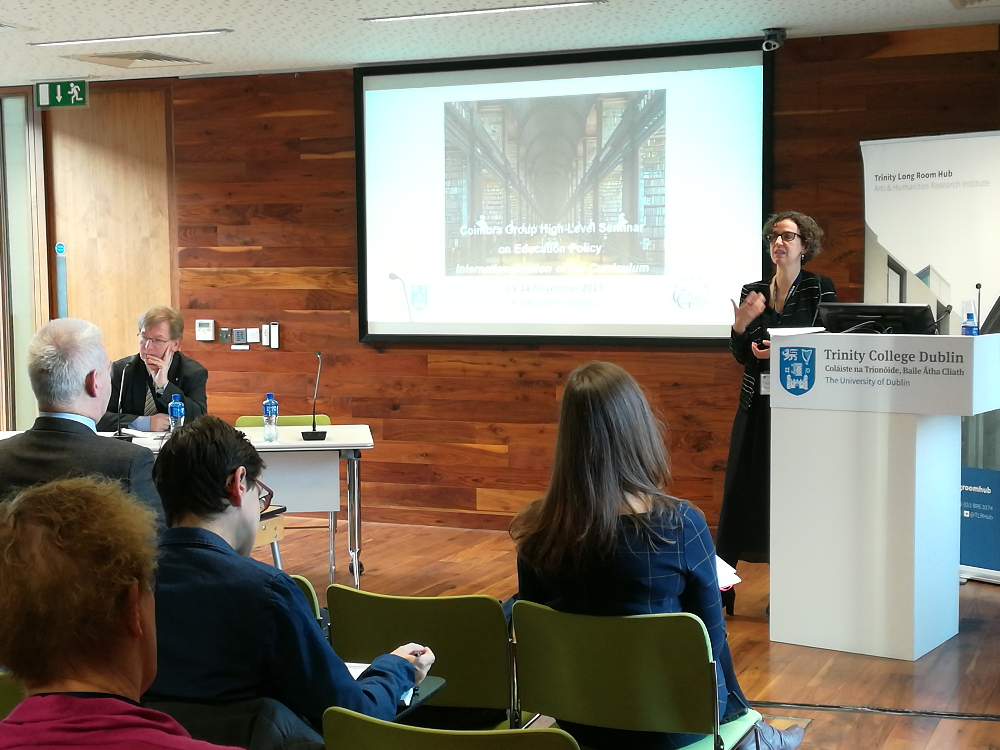
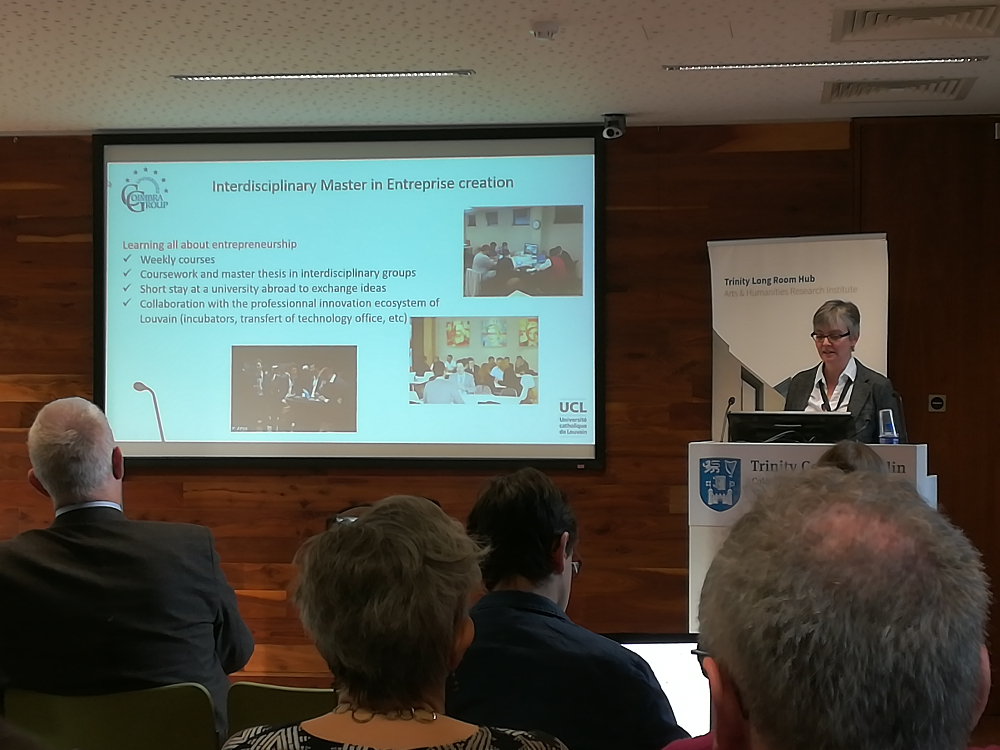
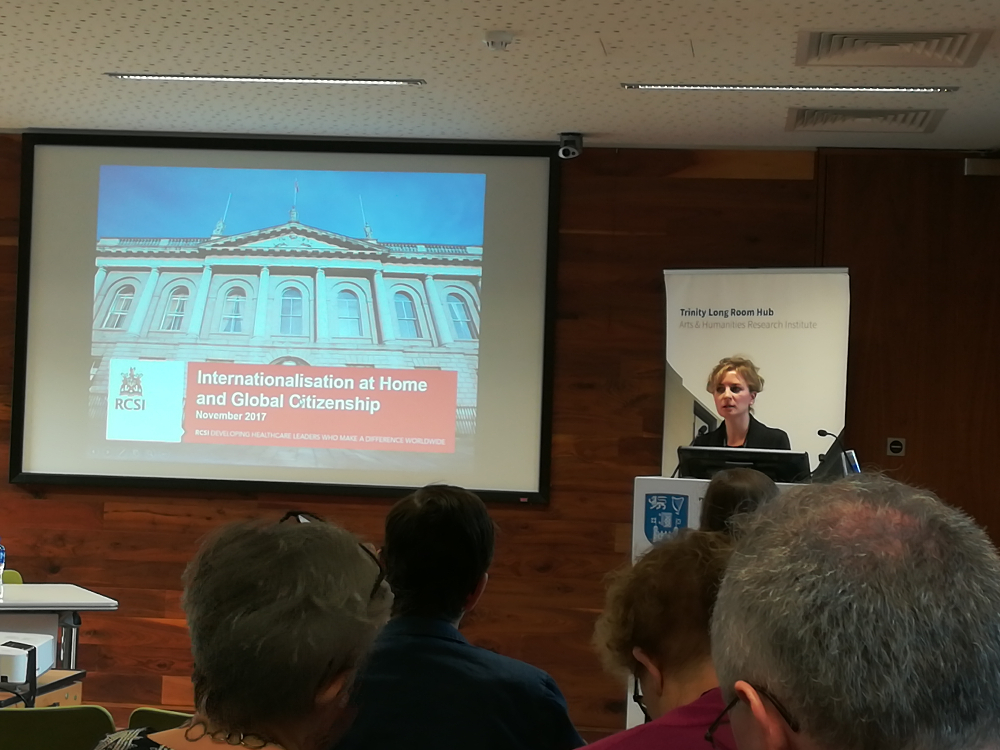
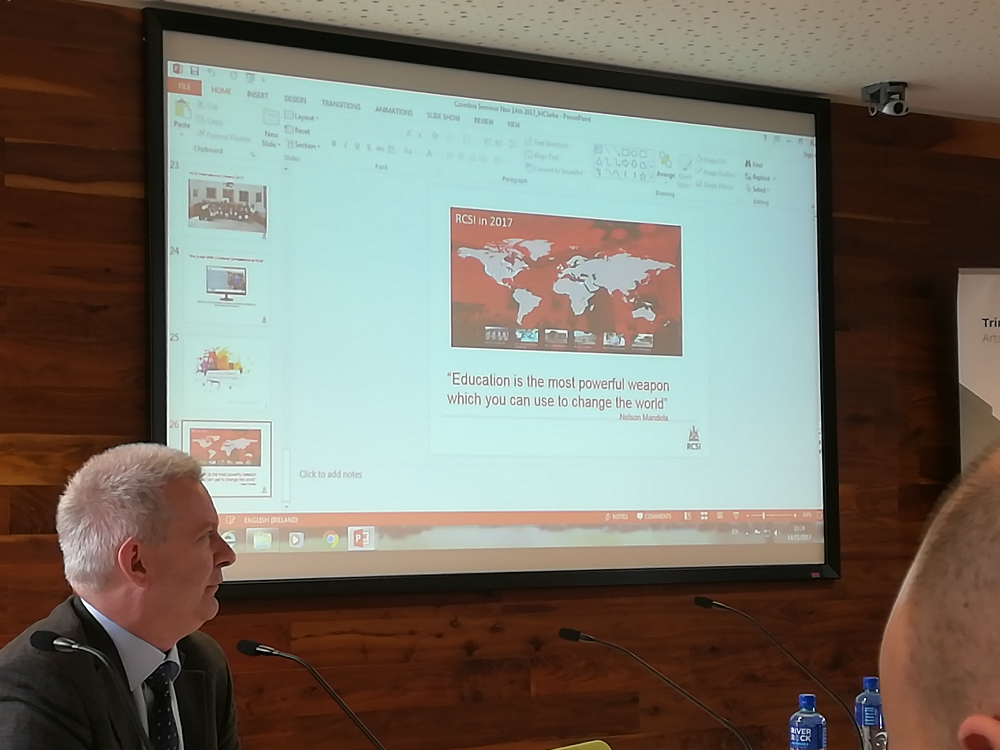
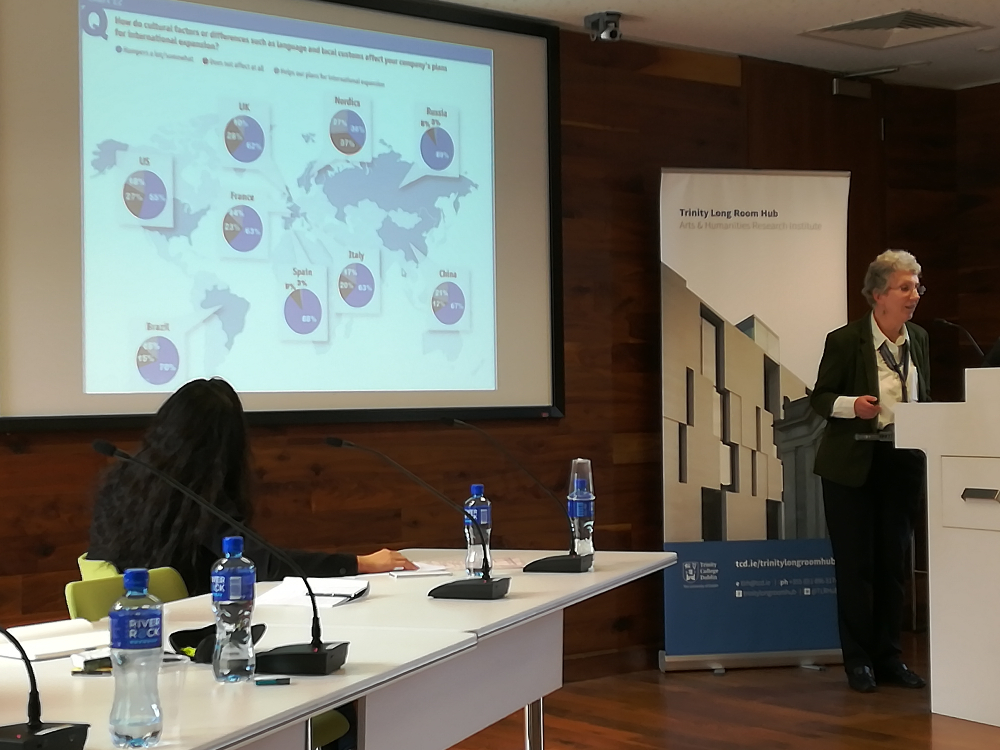
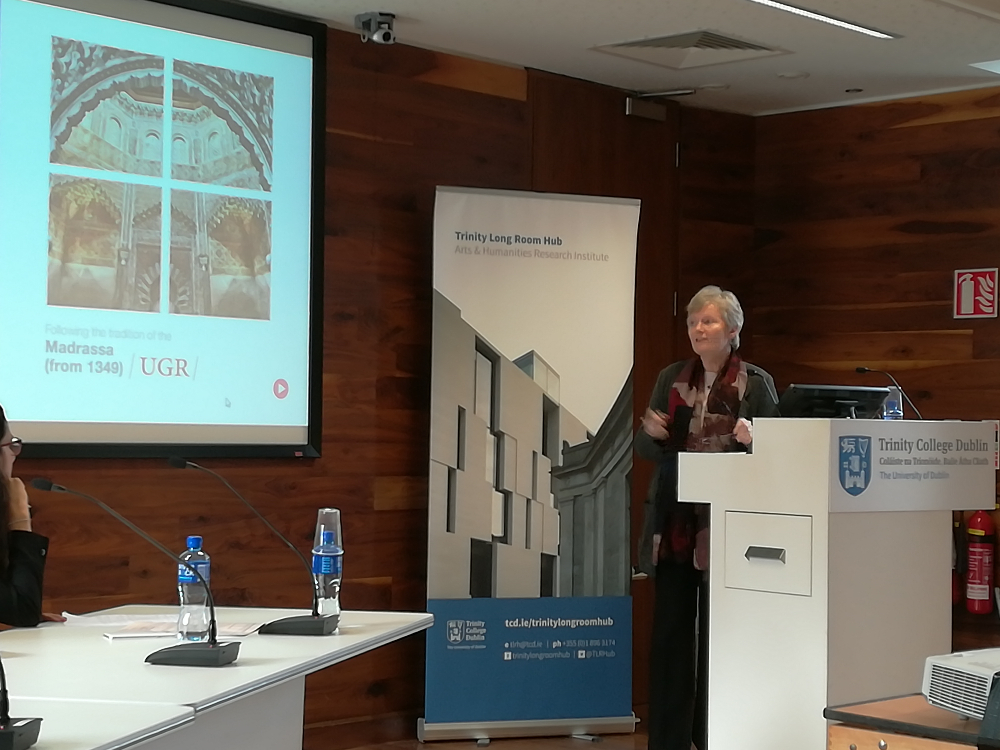
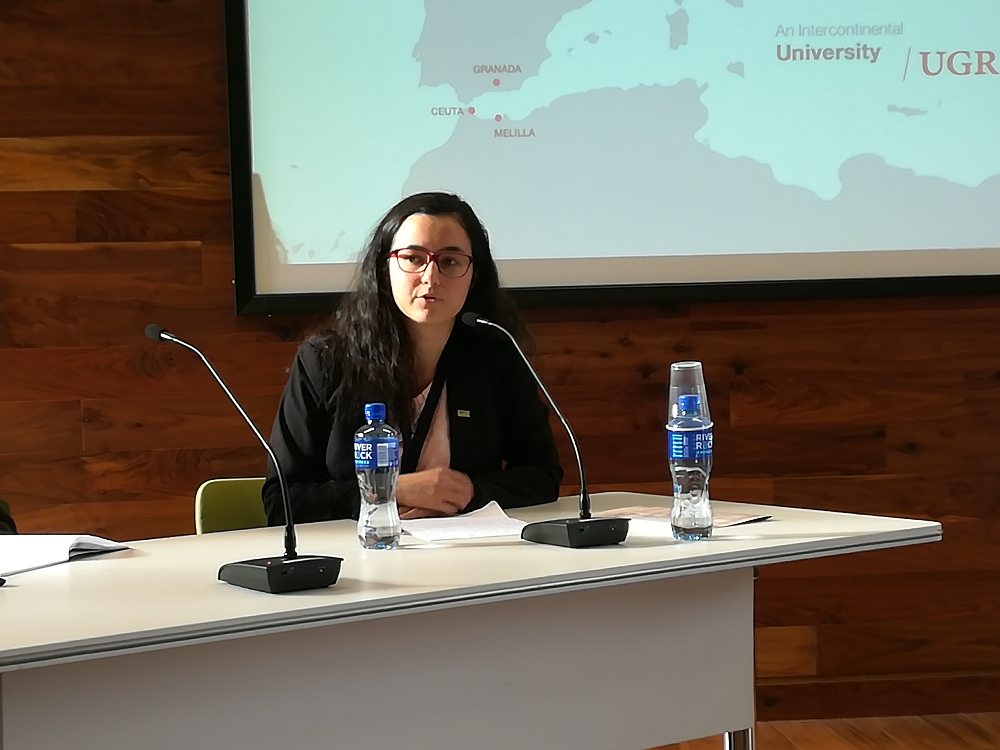
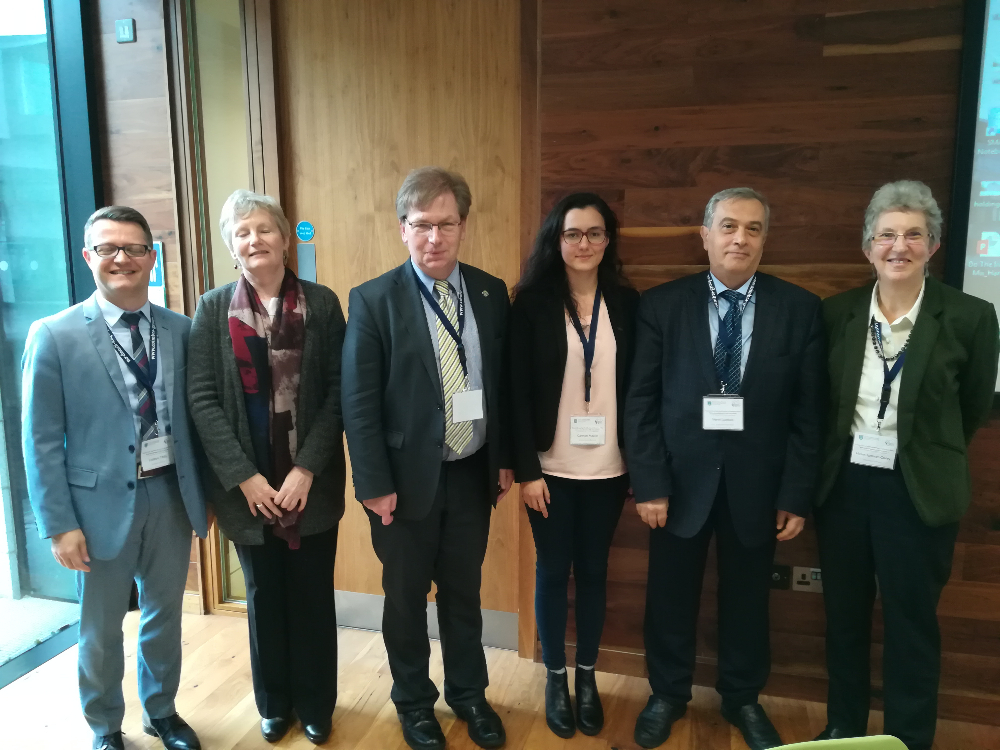
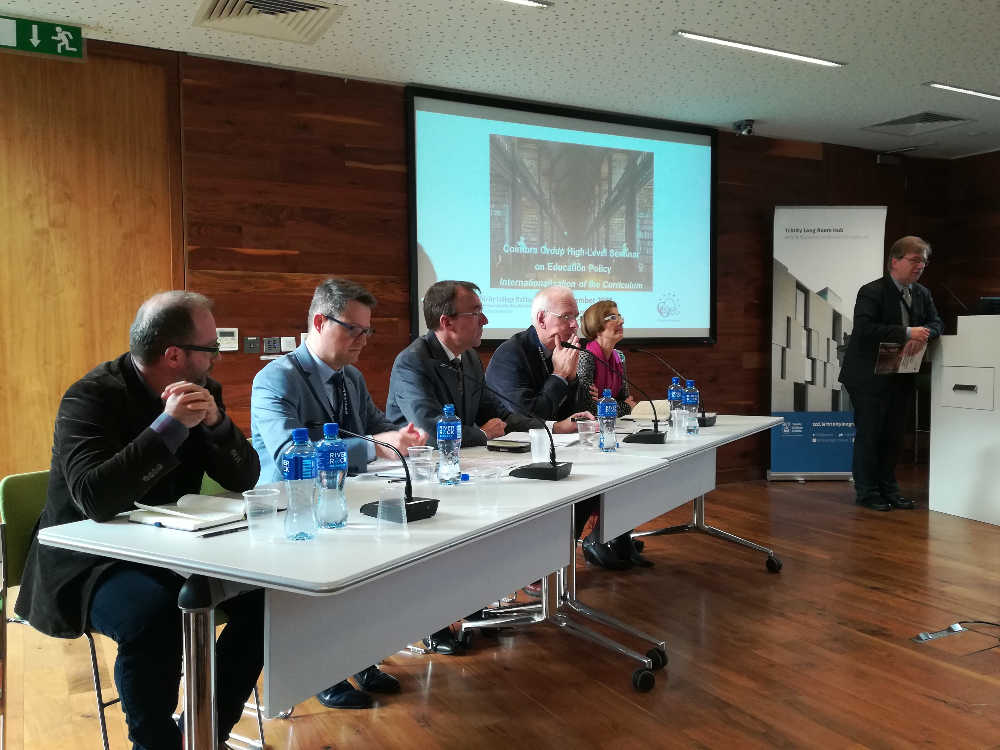
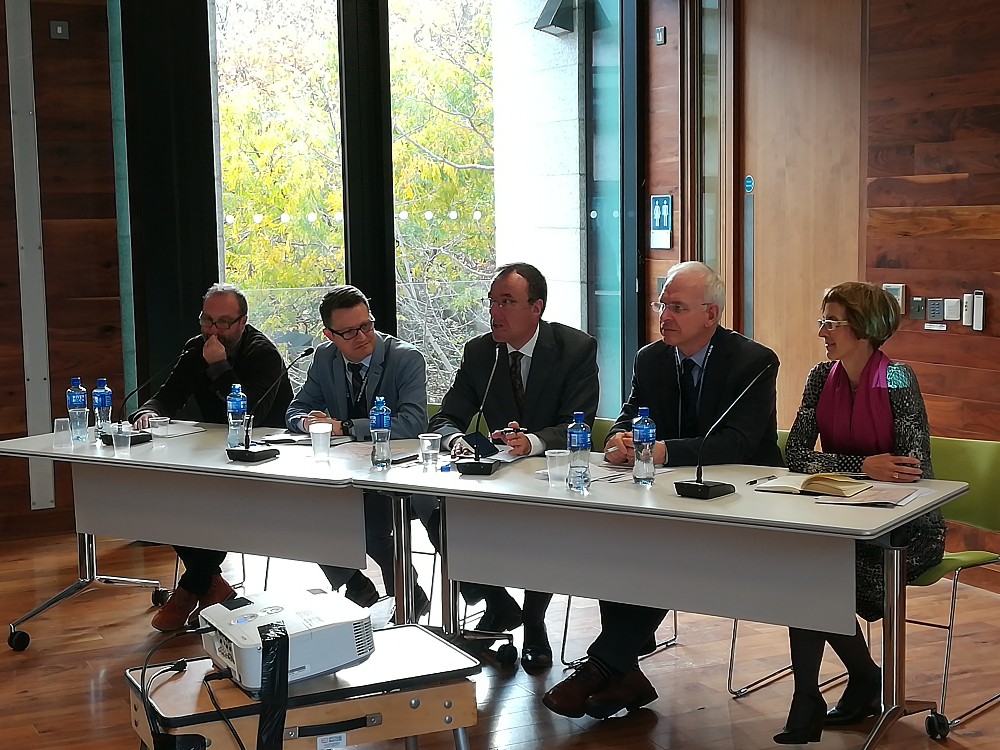
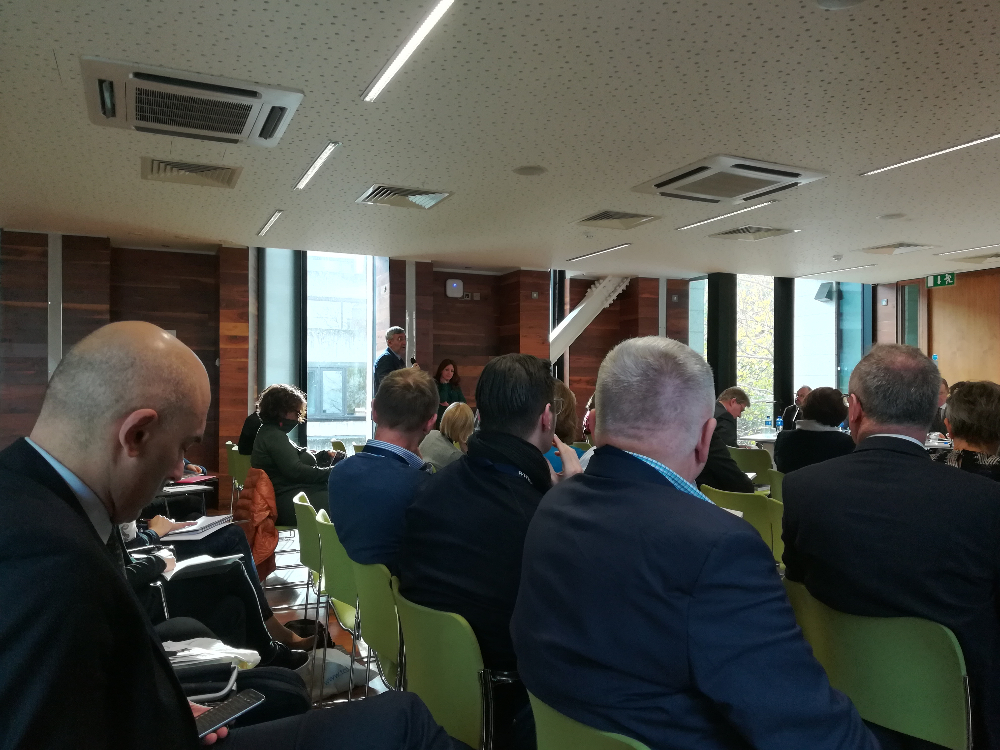
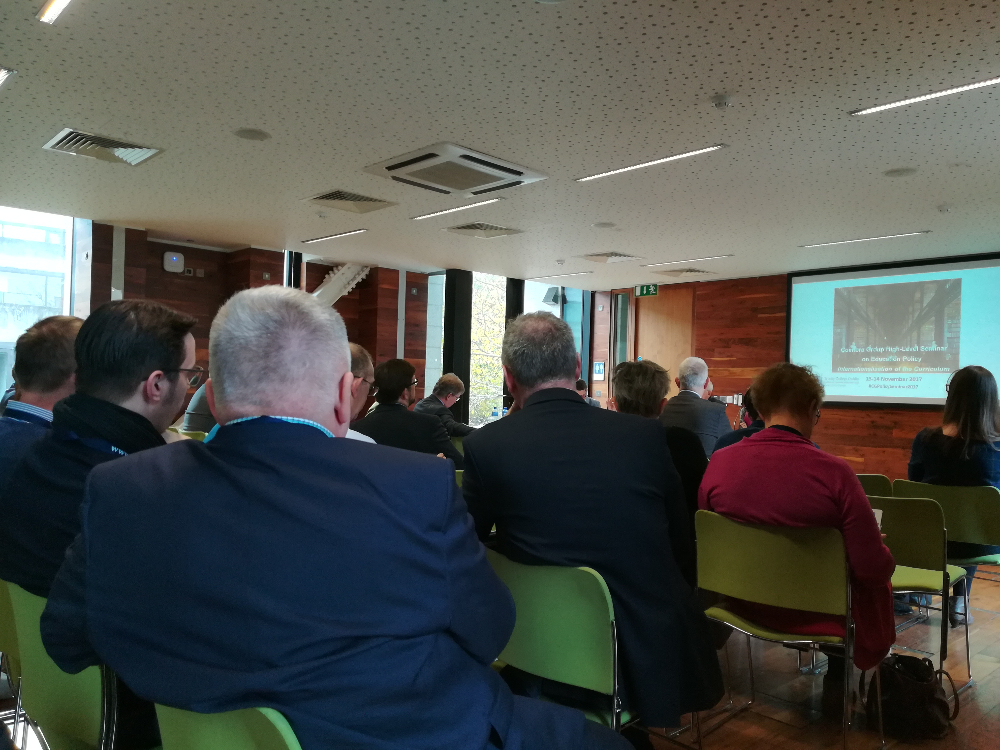
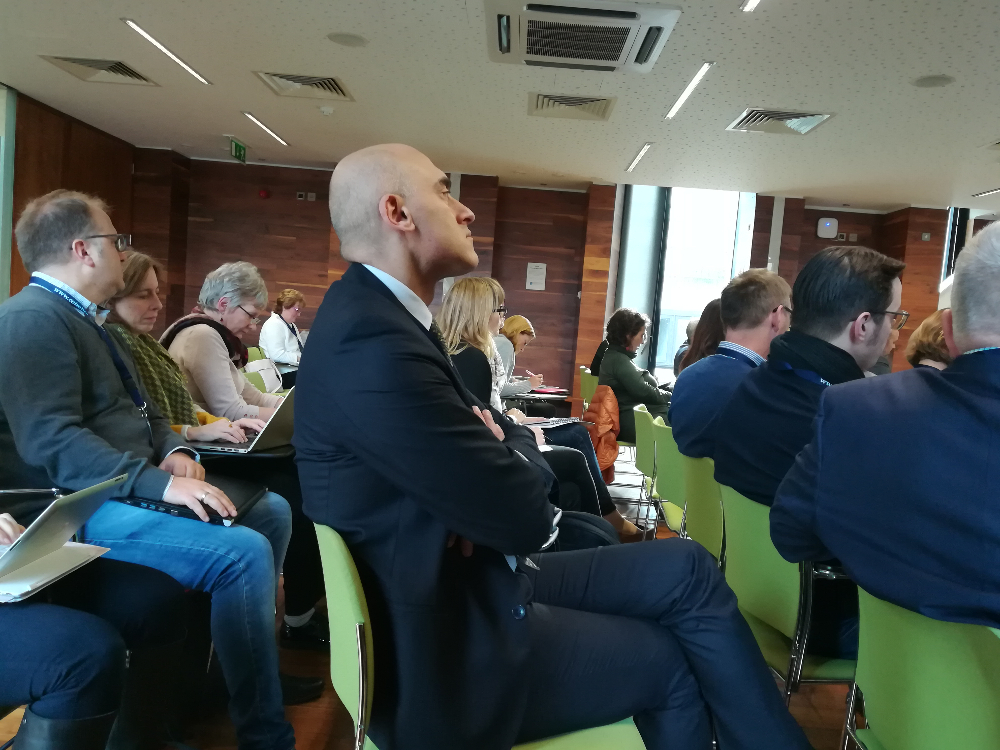
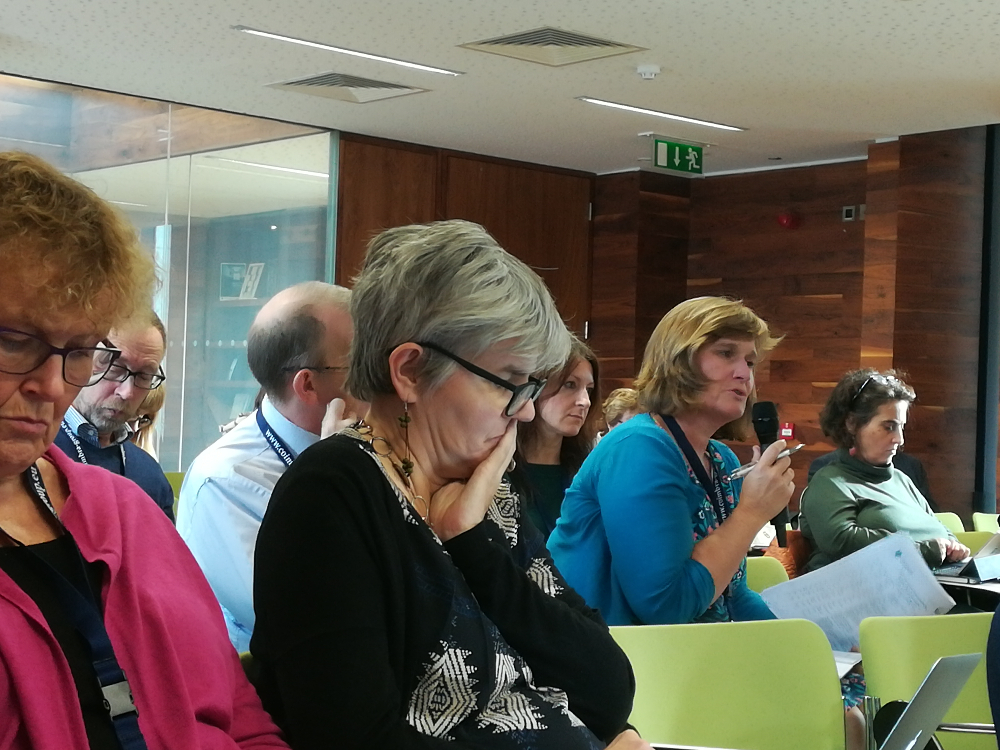
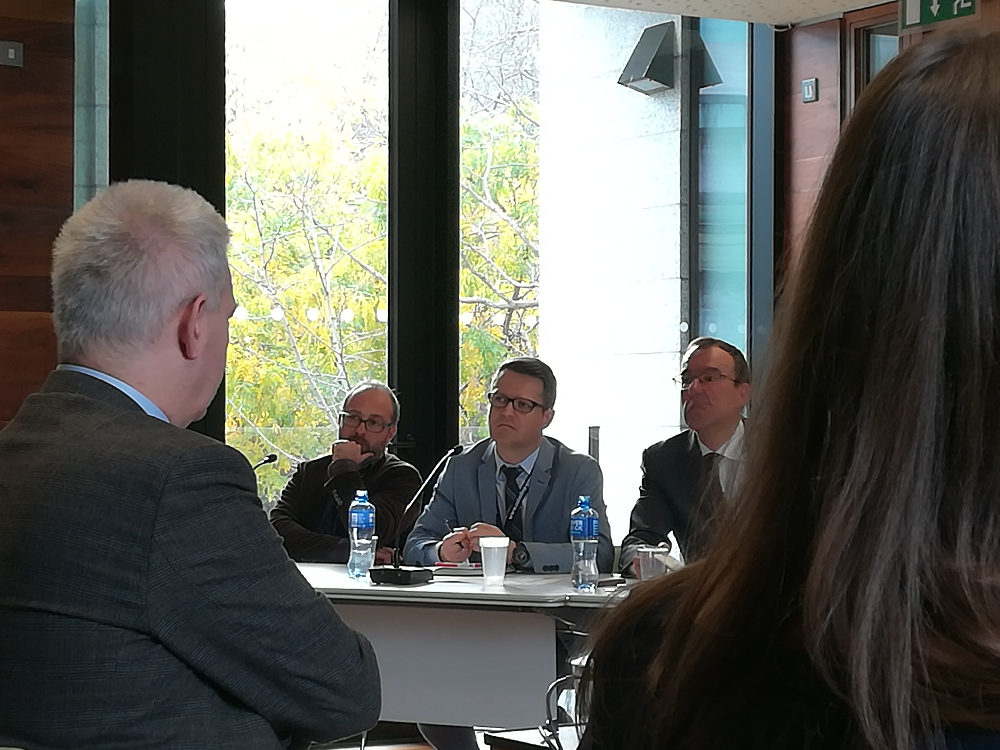
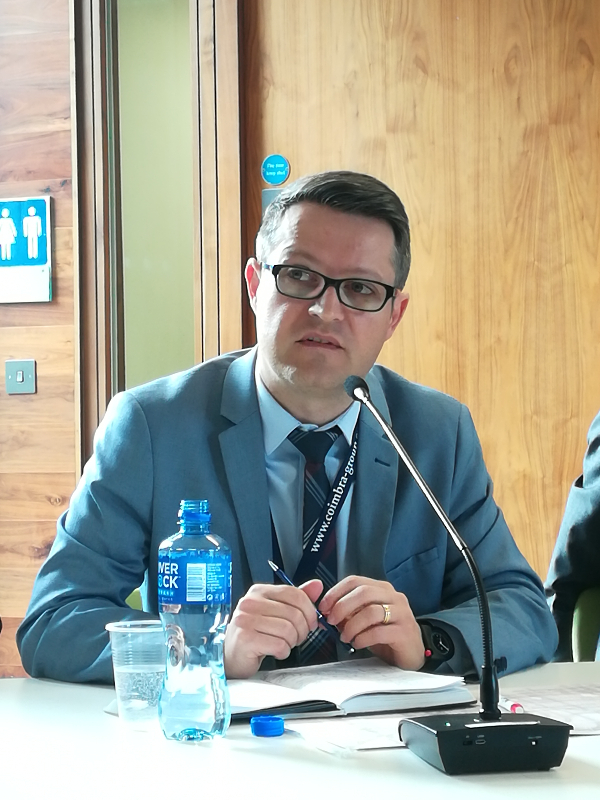
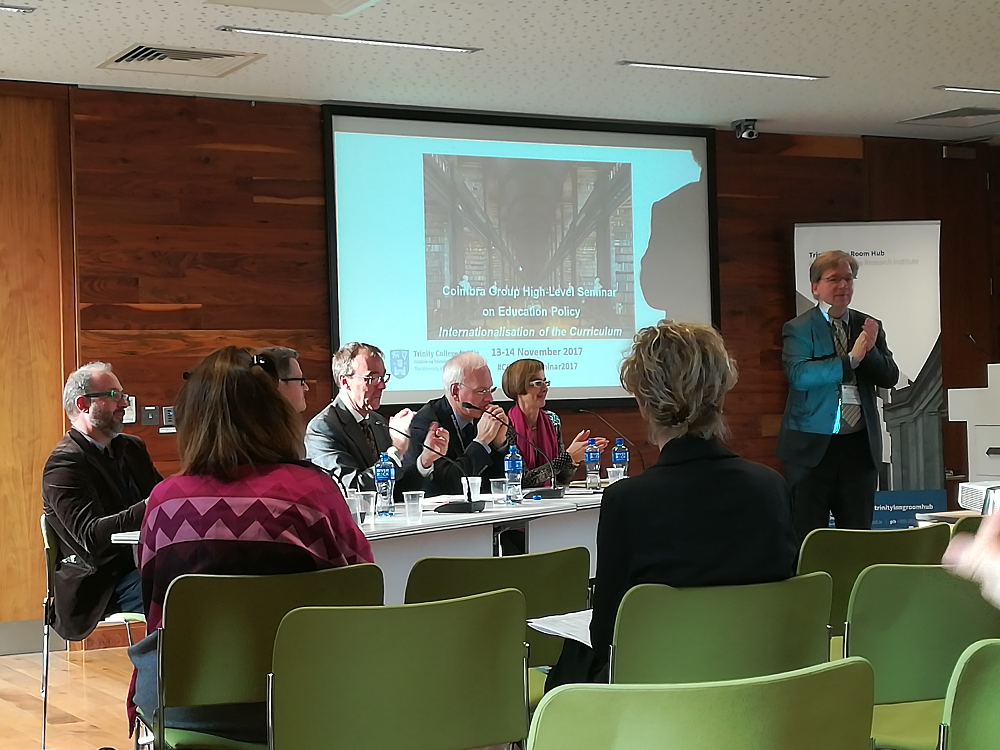
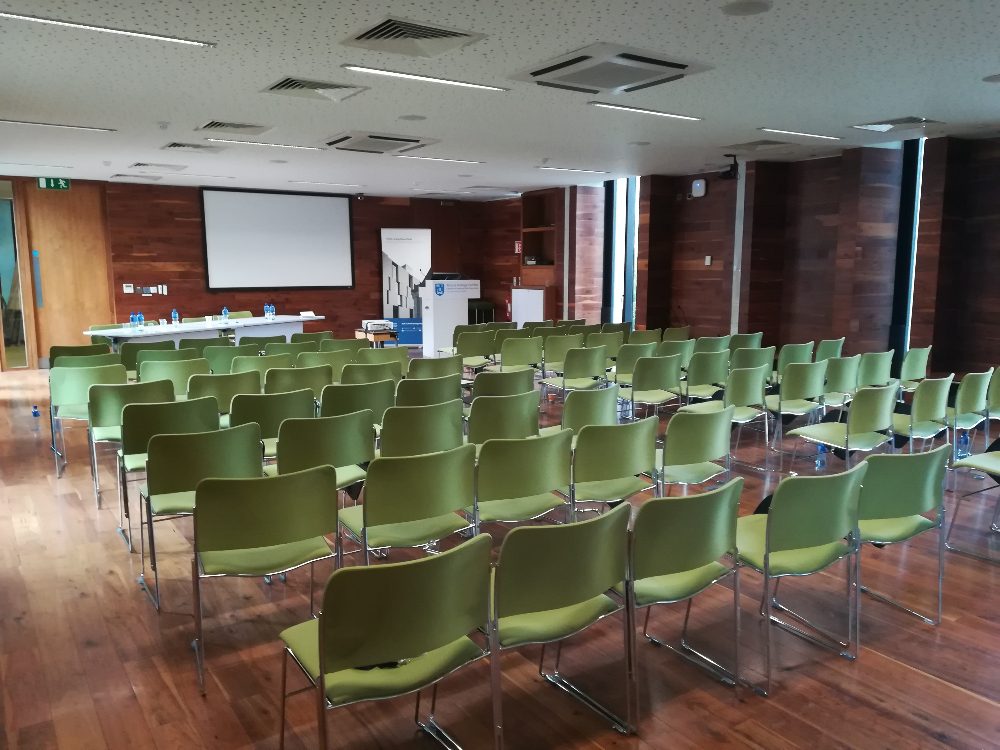
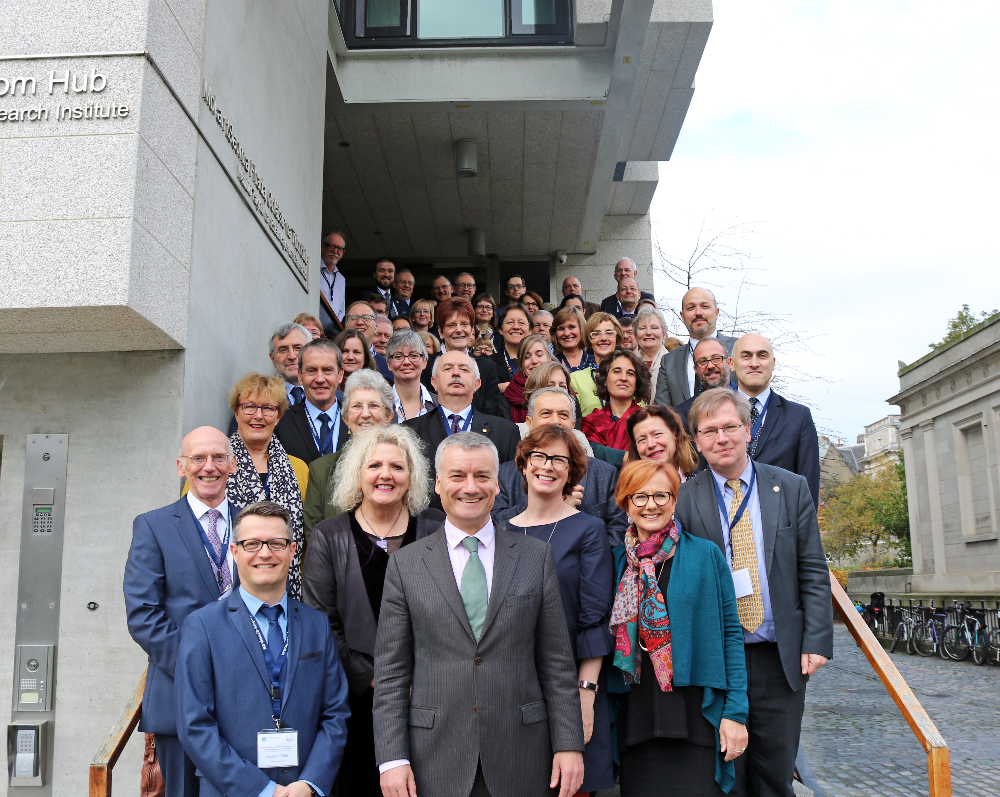
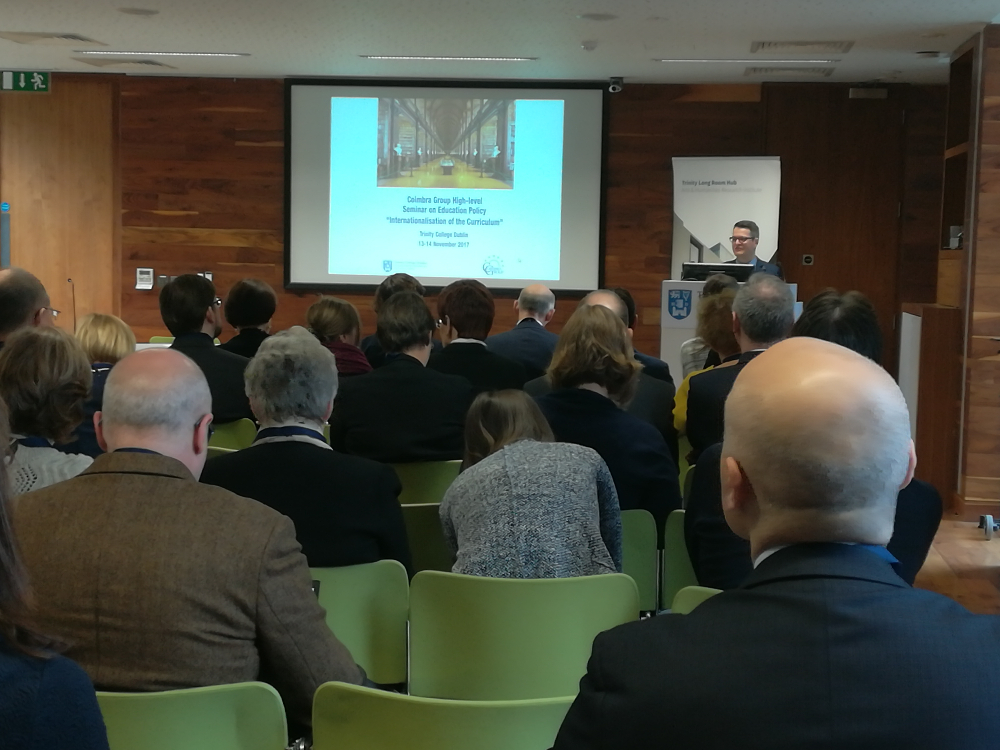
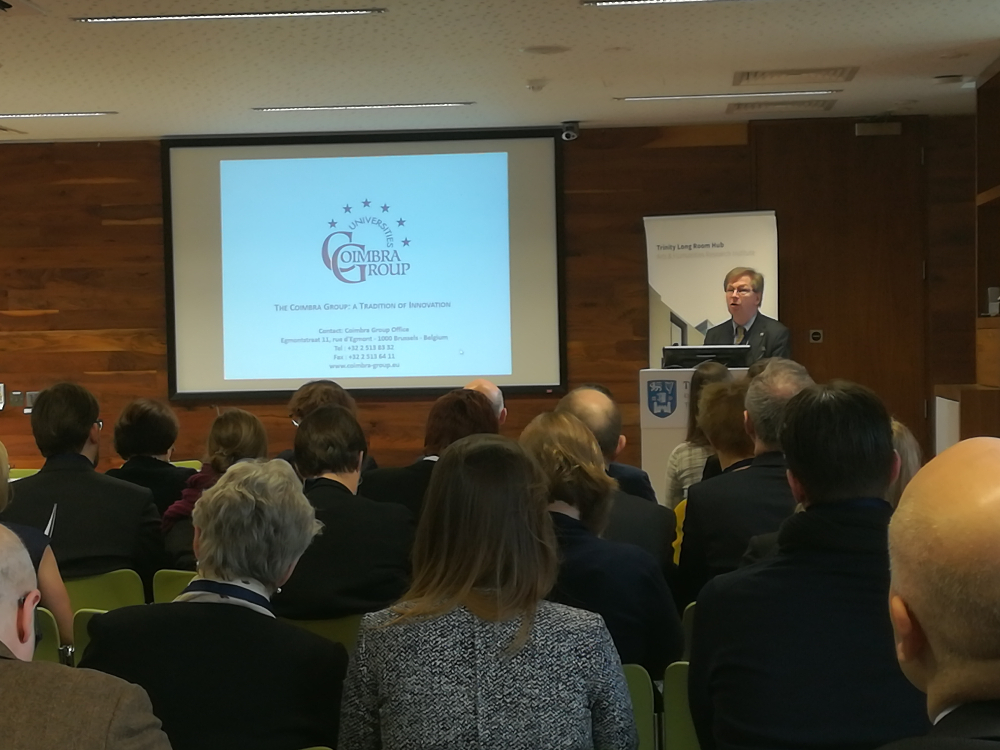
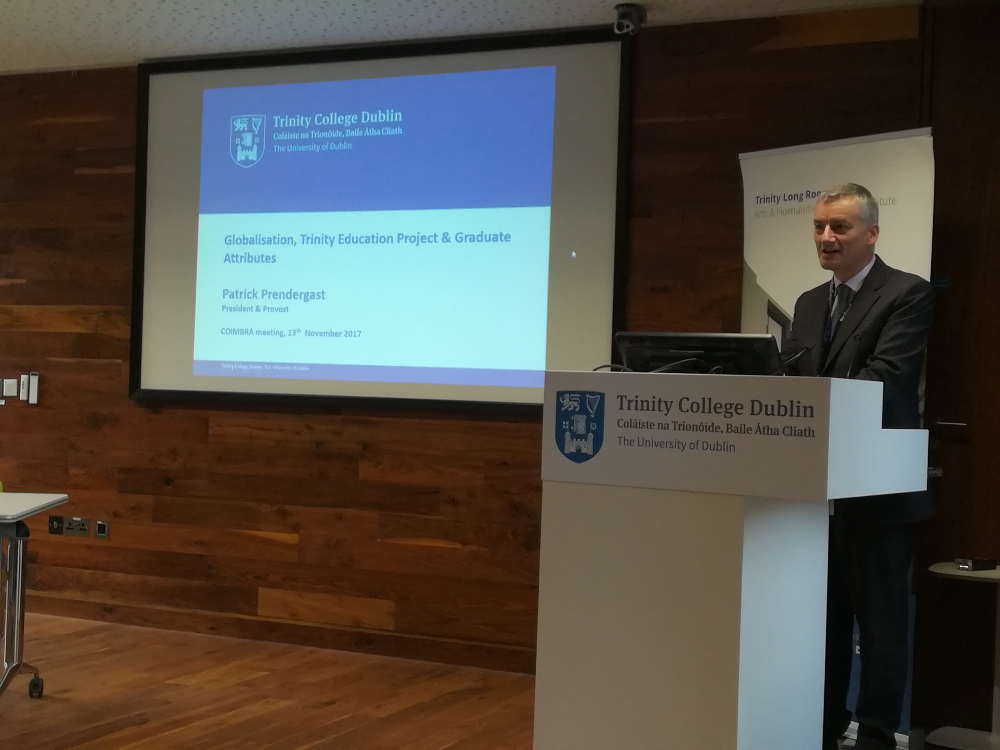
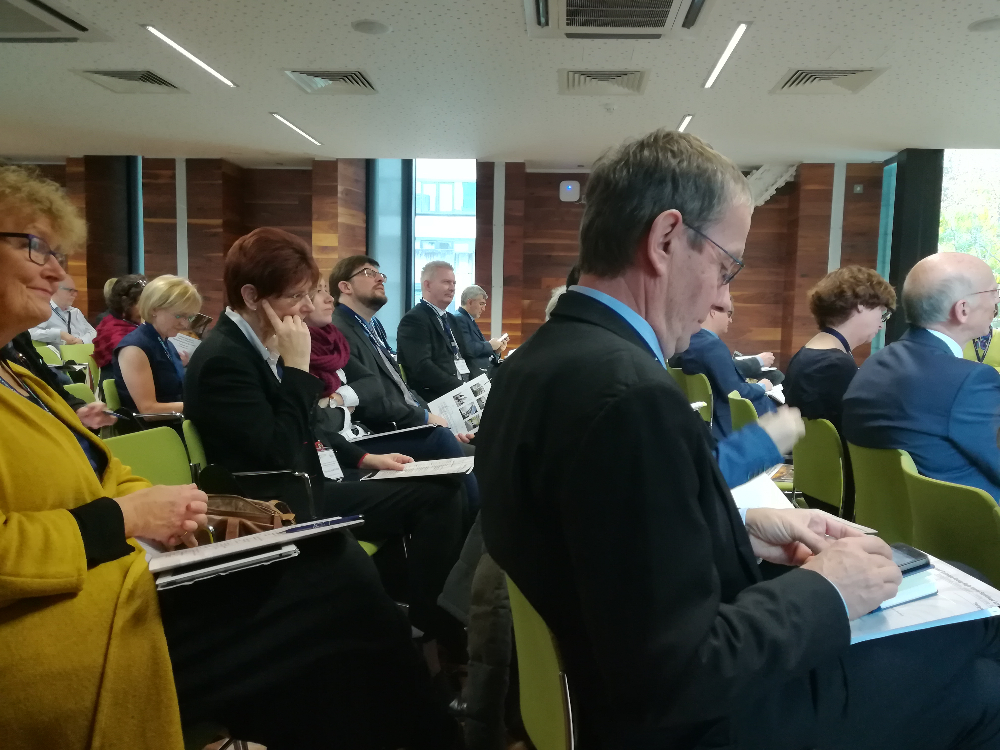
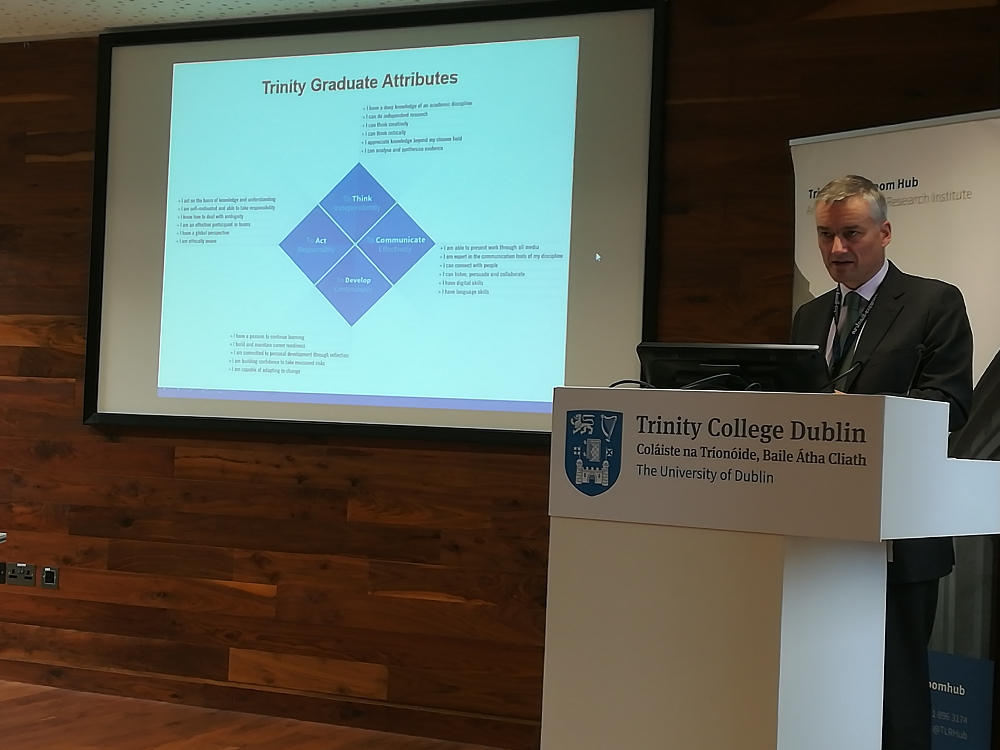
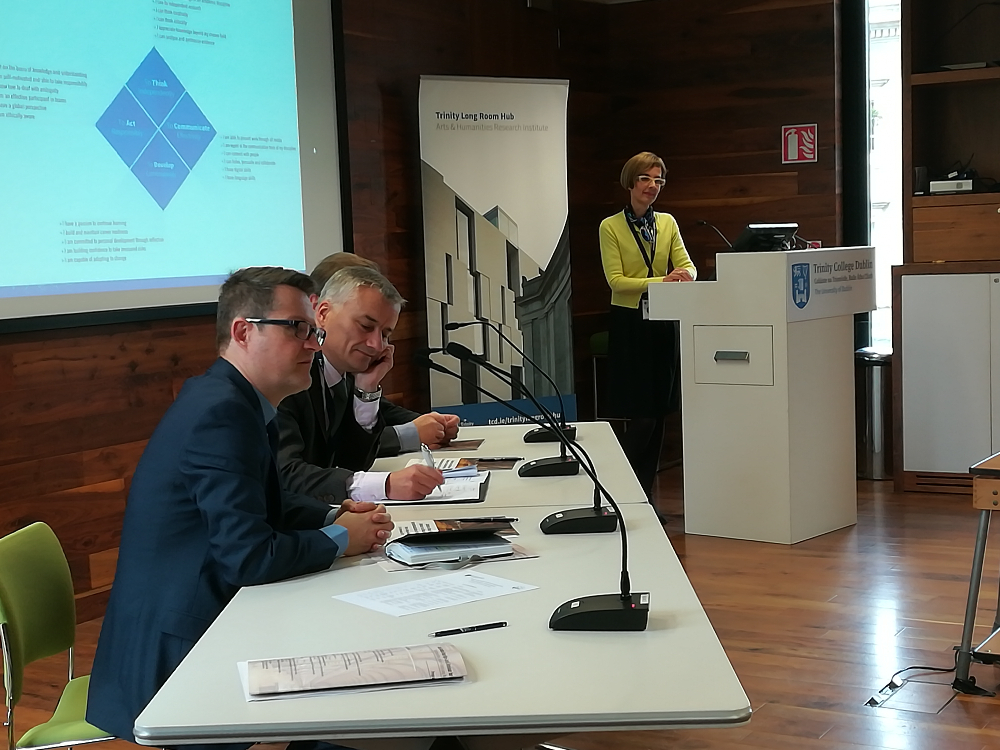
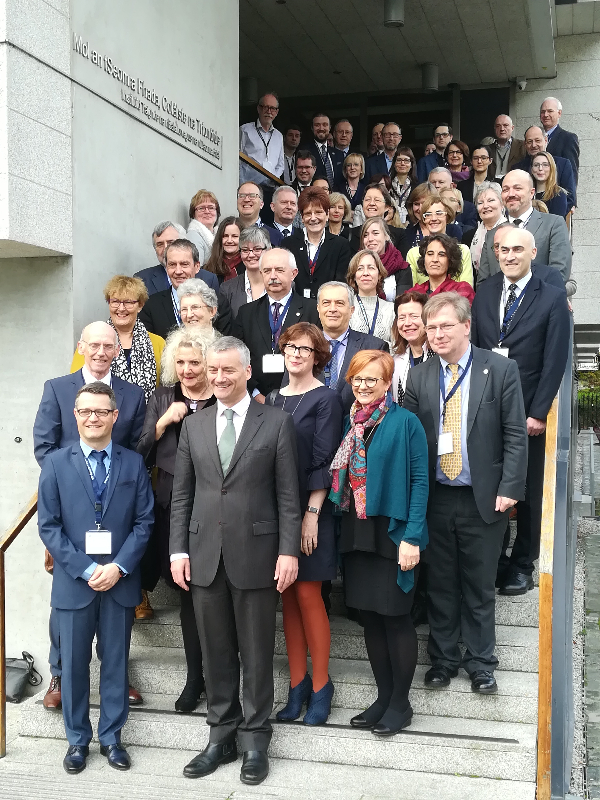
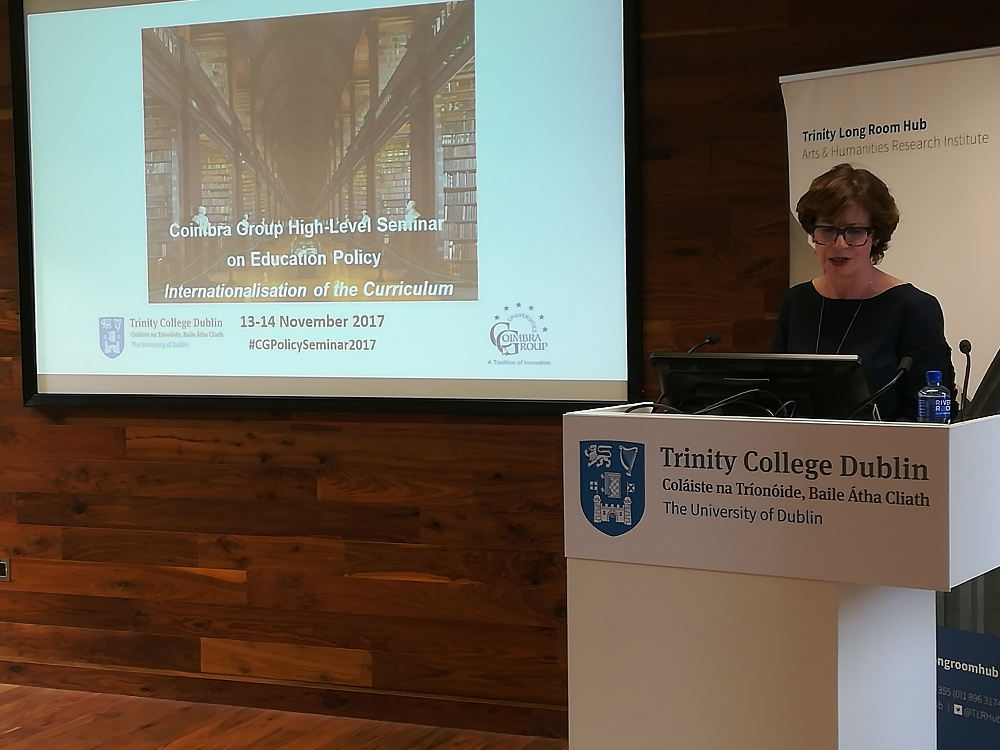
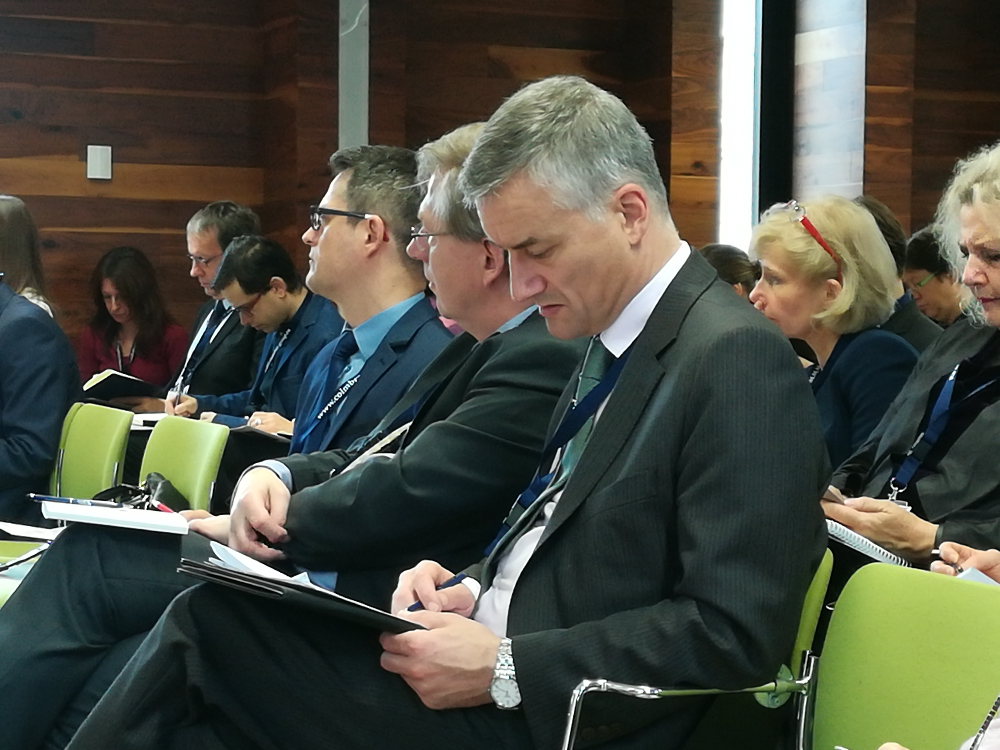
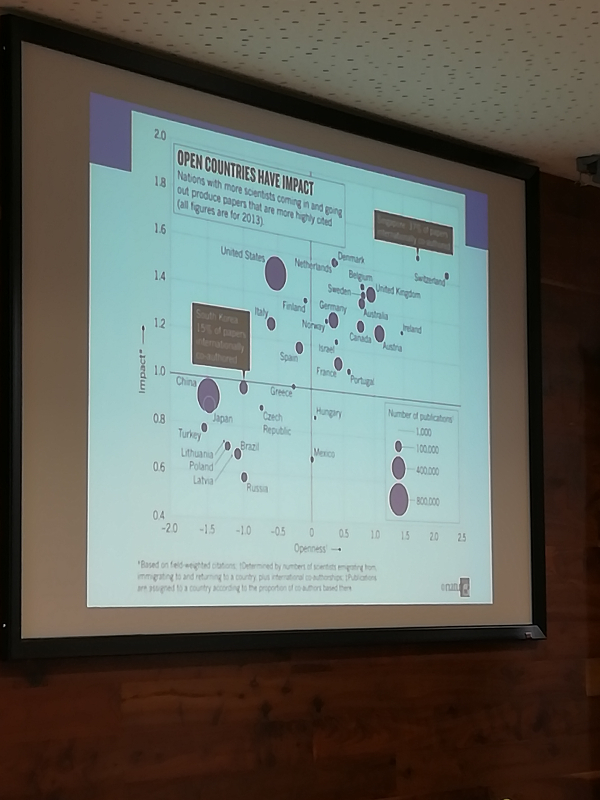
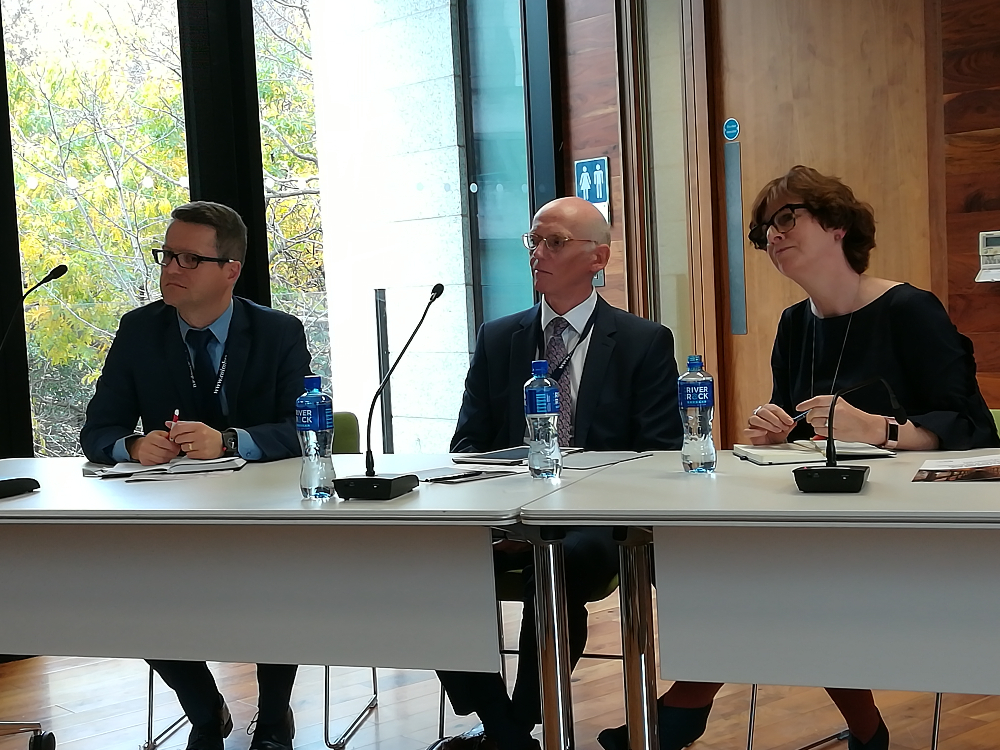
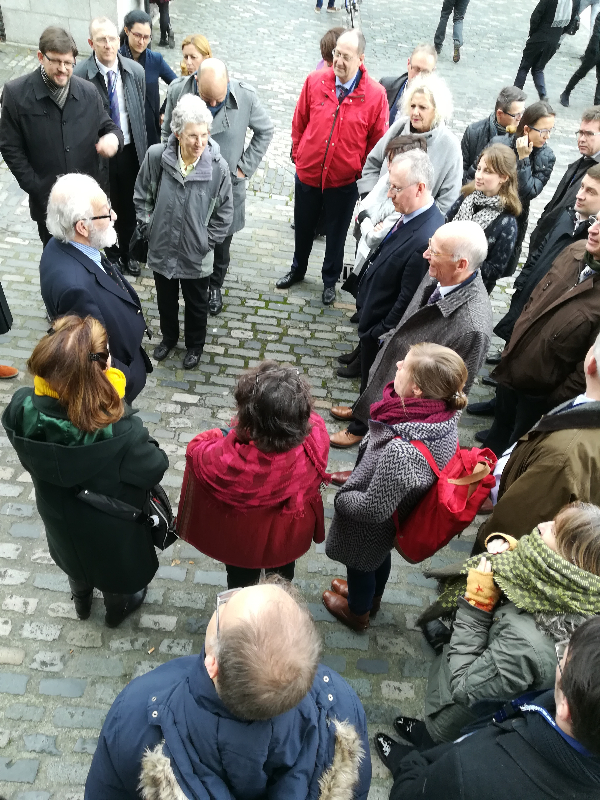
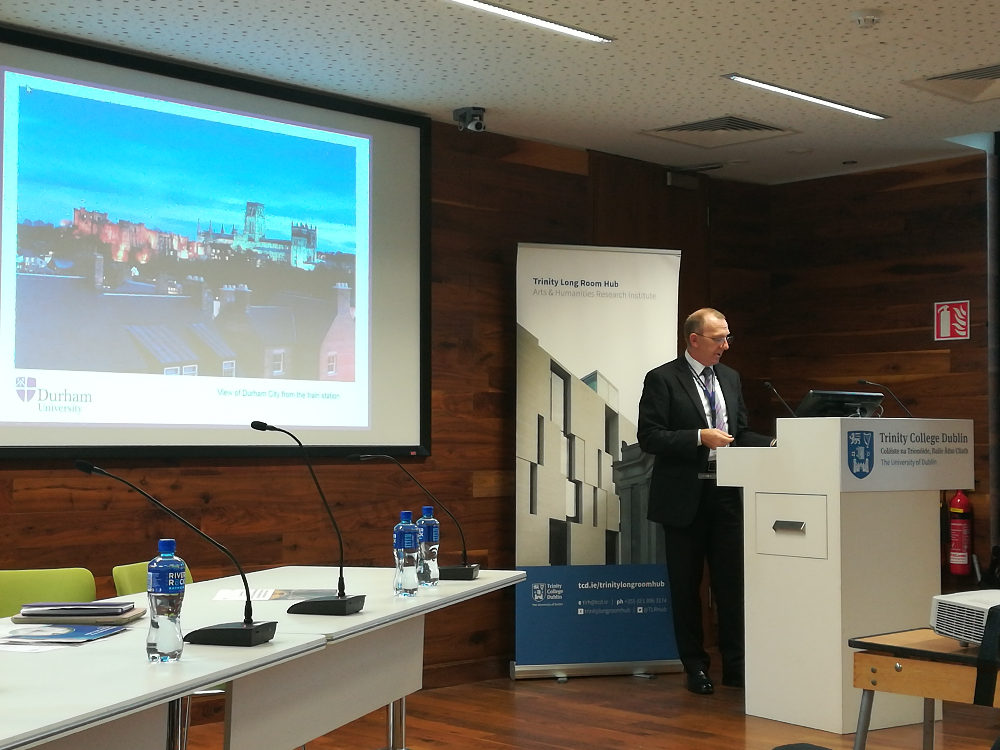
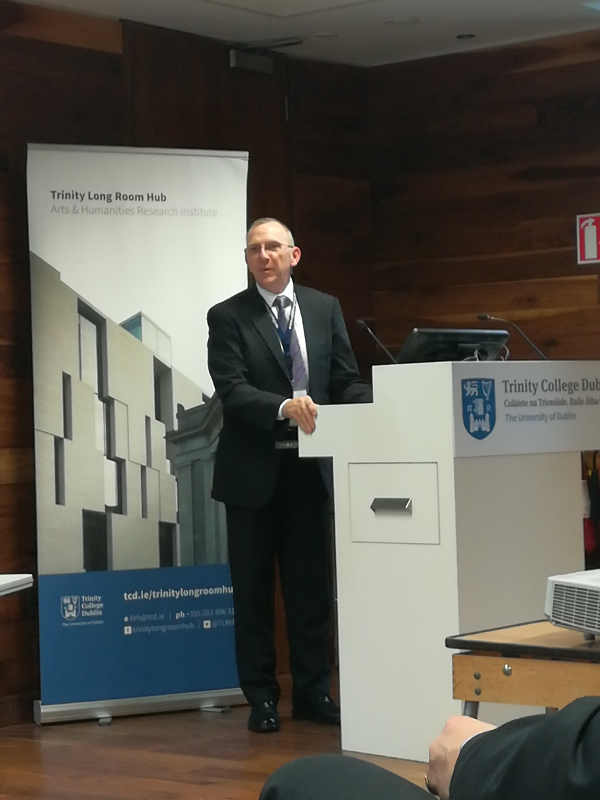
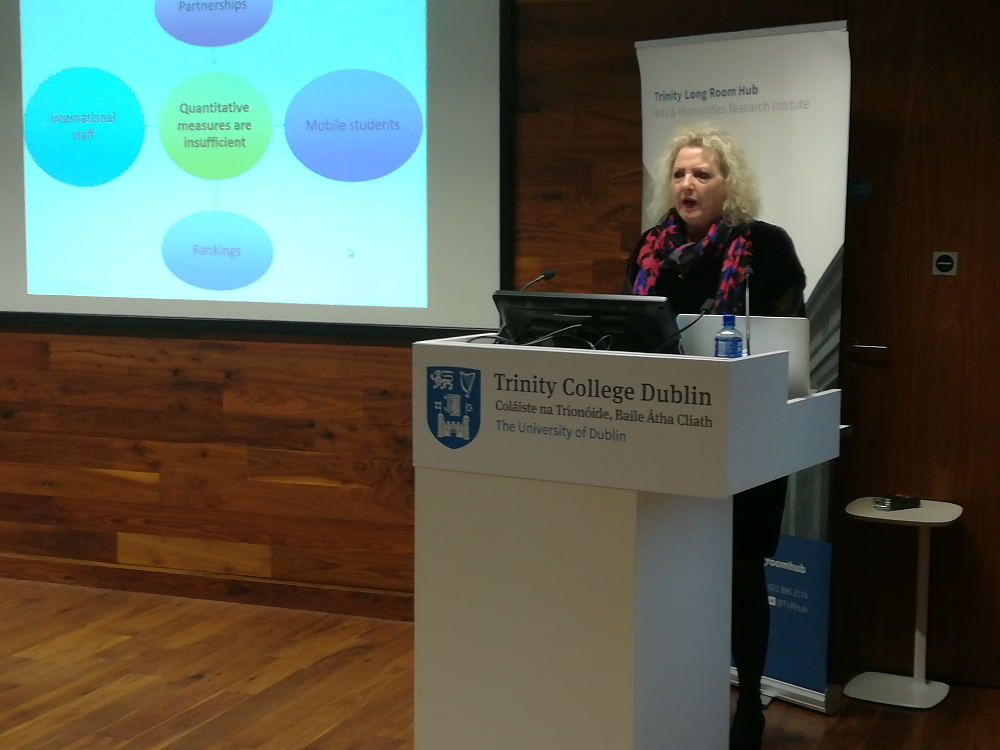
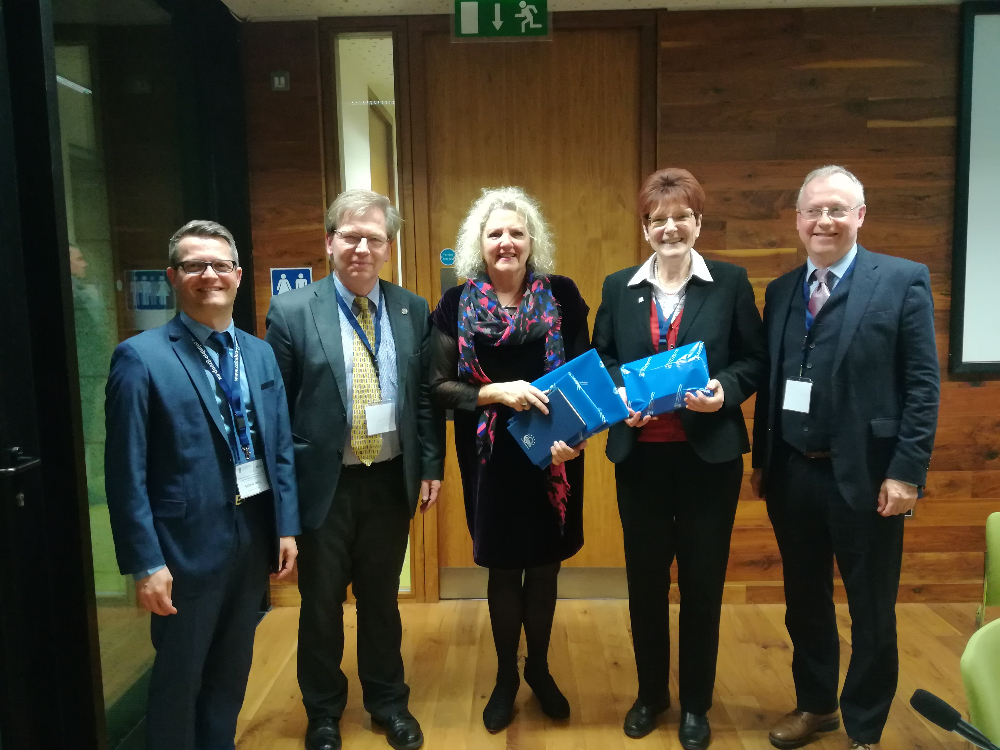
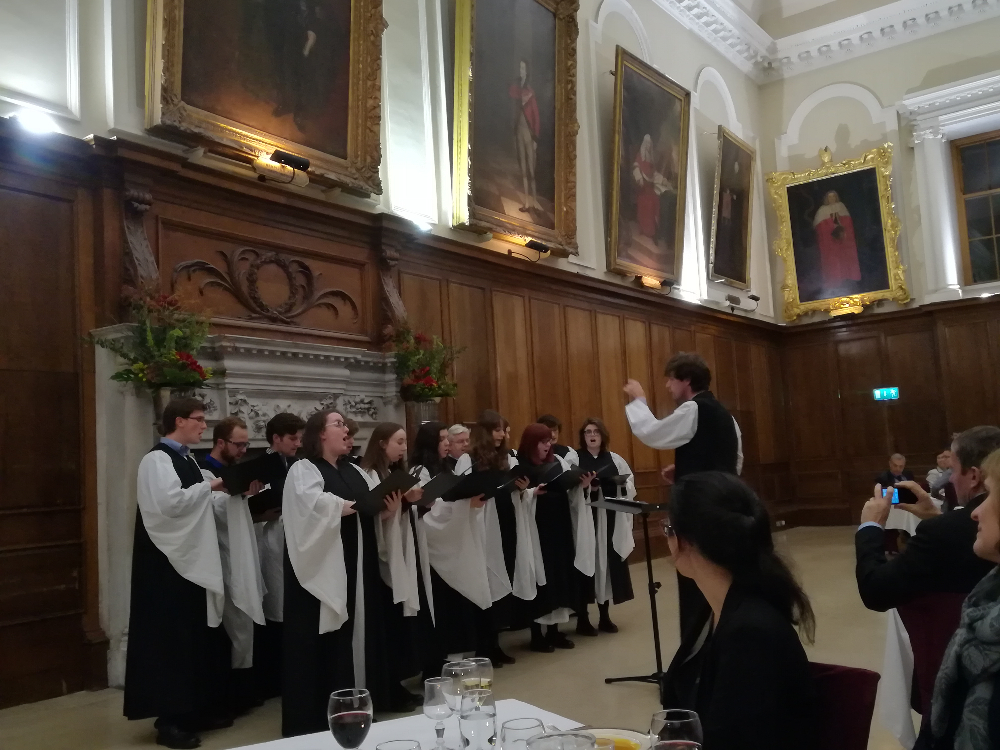
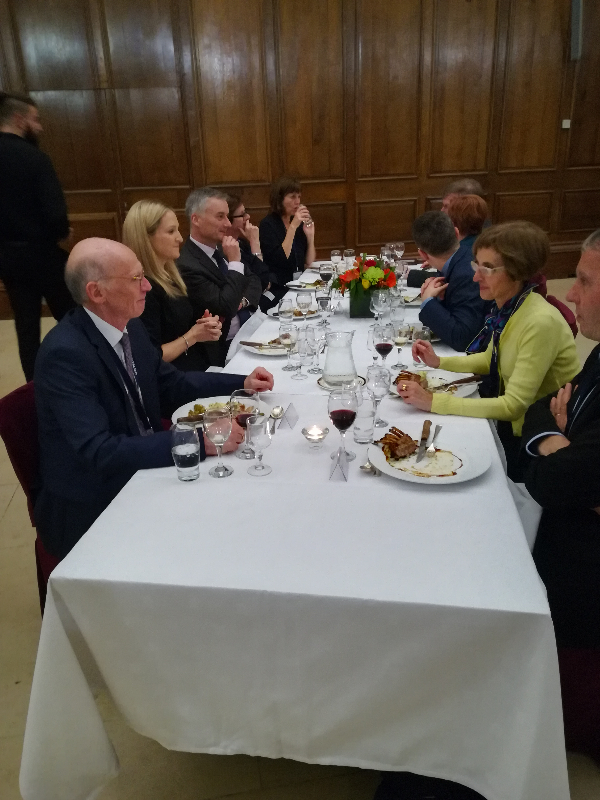
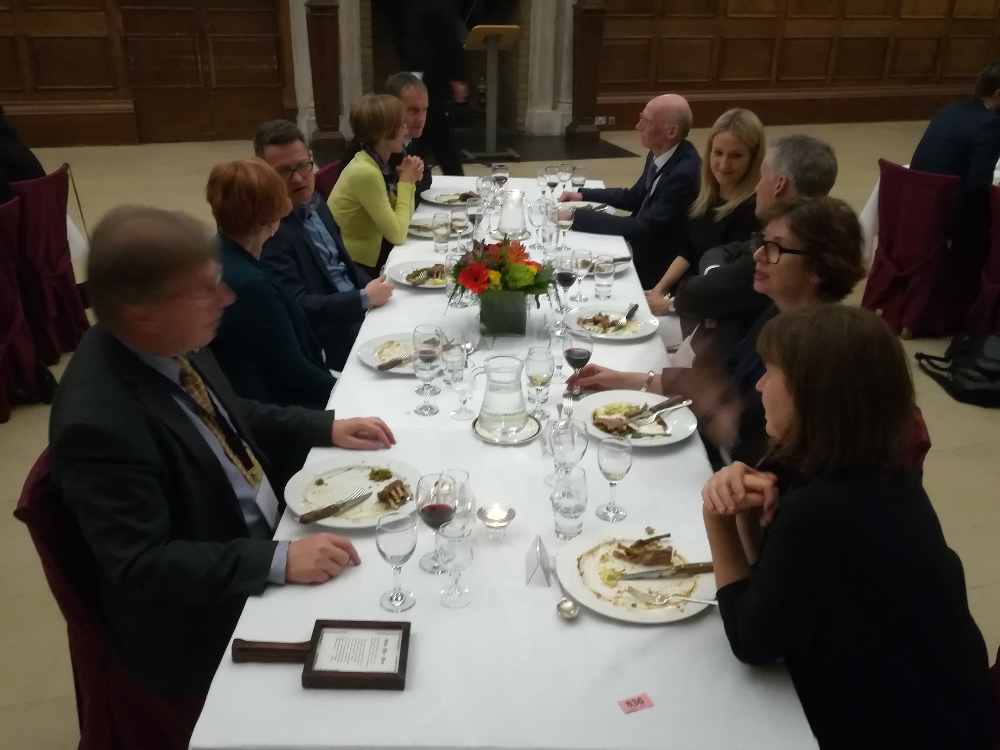
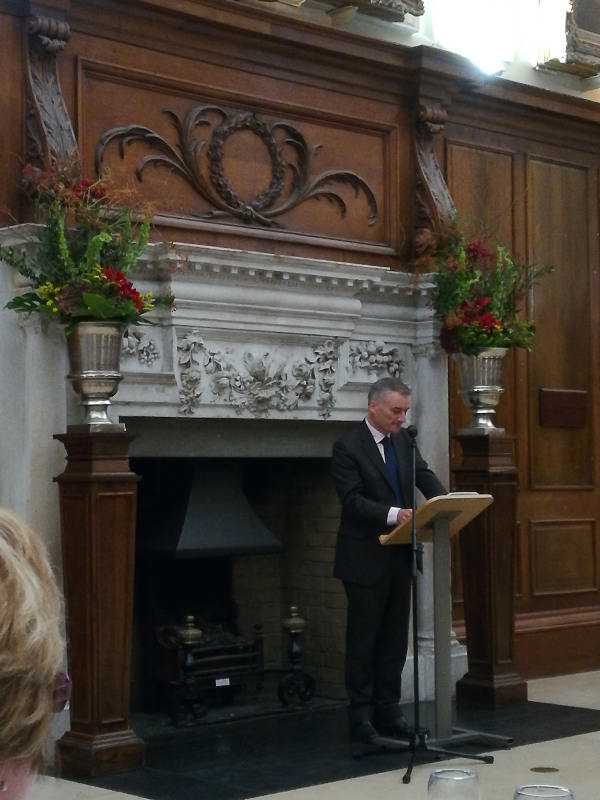
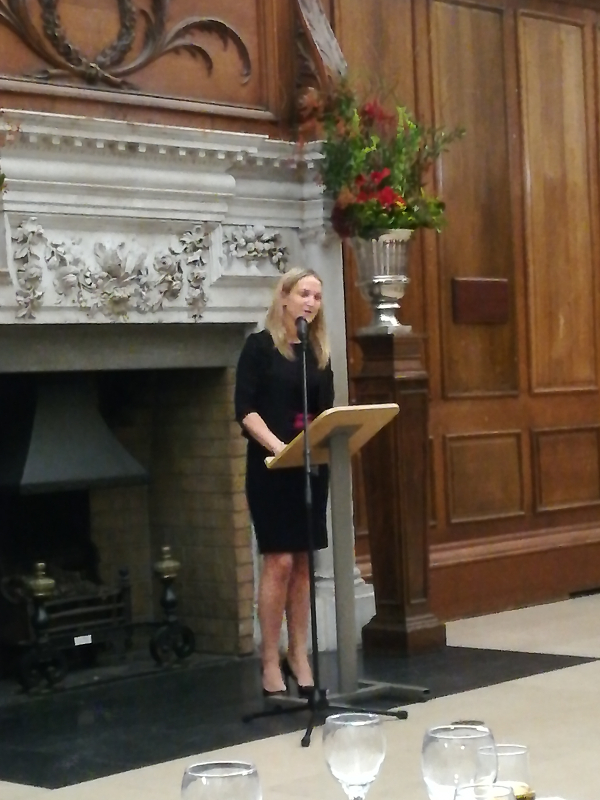
2016 CG High-Level Seminar on Research Policy, San Servolo:
“New Opportunities for University Cooperation”
27-28 October 2016, San Servolo
On 27-28 October, the Coimbra Group held its third research policy seminar at the Venice International University on the island of San Servolo. The seminar was opened by President Yves Jean, the Honorary President of the Coimbra Group, and Rector Rosario Rizzuto on behalf of the University of Padova, one of the founders of the Venice International University.
The seminar brought together twenty-five Coimbra Group universities with representatives of European organisations such as the European Commission, the League of European Research Universities, the Guild of Research-Intensive Universities and UNICA.
The afternoon saw two inspiring presentations from Senior Adviser to the Commissioner, Prof. Maria da Graça Carvalho setting the scene with the three “O”s, open innovation, open science and open to the world, while Dr Wilhelm Krull underlined the importance of training people, of nurturing the innovation that comes from human creativity.
The panel discussion brought the speakers together with Rector Rizzuto, Vice-President Lokesh Joshi from Galway and Prof. Deketelaere from LERU.
The second day concentrated on the theme of research infrastructures, with an introductory presentation from David Bohmert, who represents the Swiss National Science Foundation on the ESFRI Board, the European Strategy Forum on Research Infrastructures, followed by Dr Jennifer Edmonds from Trinity College Dublin and Prof. Paul Bertrand from University of Louvain on DARIAH, Digital Research Infrastructures for the Arts and Humanities. Rector Žukauskas from Vilnius University presented the shared infrastructures at his university, and Prof. Serge Huberson looked at the international cooperation level and the questions of sustainability.
You will find the presentations below:
Coimbra Group conference “Impact of a Horizon 2020 proposal – industrial leadership and societal challenges”
3-4 December 2015, Aarhus University
Impact has become one of the key evaluation criteria in Horizon 2020 European research proposals. The European Commission is planning to apply more rigorous evaluations with respect to the impact of a proposal. This makes it crucial for Research Support Offices to help the researchers to understand and to explain the potential impact of proposals – two issues which many find difficult.
WHY SHOULD YOU ATTEND?
The aim of the conference is two-fold:
- To shed light on and understand how impact of a research project is assessed
and how the Commission will proceed with the development of impact evaluation - To learn about experiences from users, evaluators and successful research
support offices
2015 CG High-Level Seminar on Education Policy, Iasi:
“A tradition of Innovation”
26-27 October 2015, Alexandru Ioan Cuza University of Iași
Seminar for Directors/Coordinators of Translation, Interpreting and Translation Studies Programmes
28 October 2015, Alexandru Ioan Cuza University of Iași
2014 CG High-Level Seminar on Research Policy, San Servolo:
“Horizons 2015: First Experiences, Emerging Expectations – Horizon 2020 from the perspective of European Research Universities”
30-31 October 2014, San Servolo
Summary of Findings Rector Elmer Sterken, Honorary President of CG Rectors’ Advisory Group
Message from the Italian Minister of Education and Research Stefania Giannini
Presentations
Keynote on Research and Innovation Provost Patrick Prendergast, Trinity College Dublin
Open Access and Open Data in Horizon 2020 Dr Wolfram Horstmann Georg-August University Göttingen
Conclusions Honorary President, Rector Elmer Sterken, University of Groningen (intranet)
Science 2.0: the view from LERU Dr Paul Ayris – University College London (intranet)
Cohesion and Regional Innovation Rector Volli Kalm – University of Tartu
Regional Innovation Prof. Anders Malmberg – Uppsala University (intranet)


